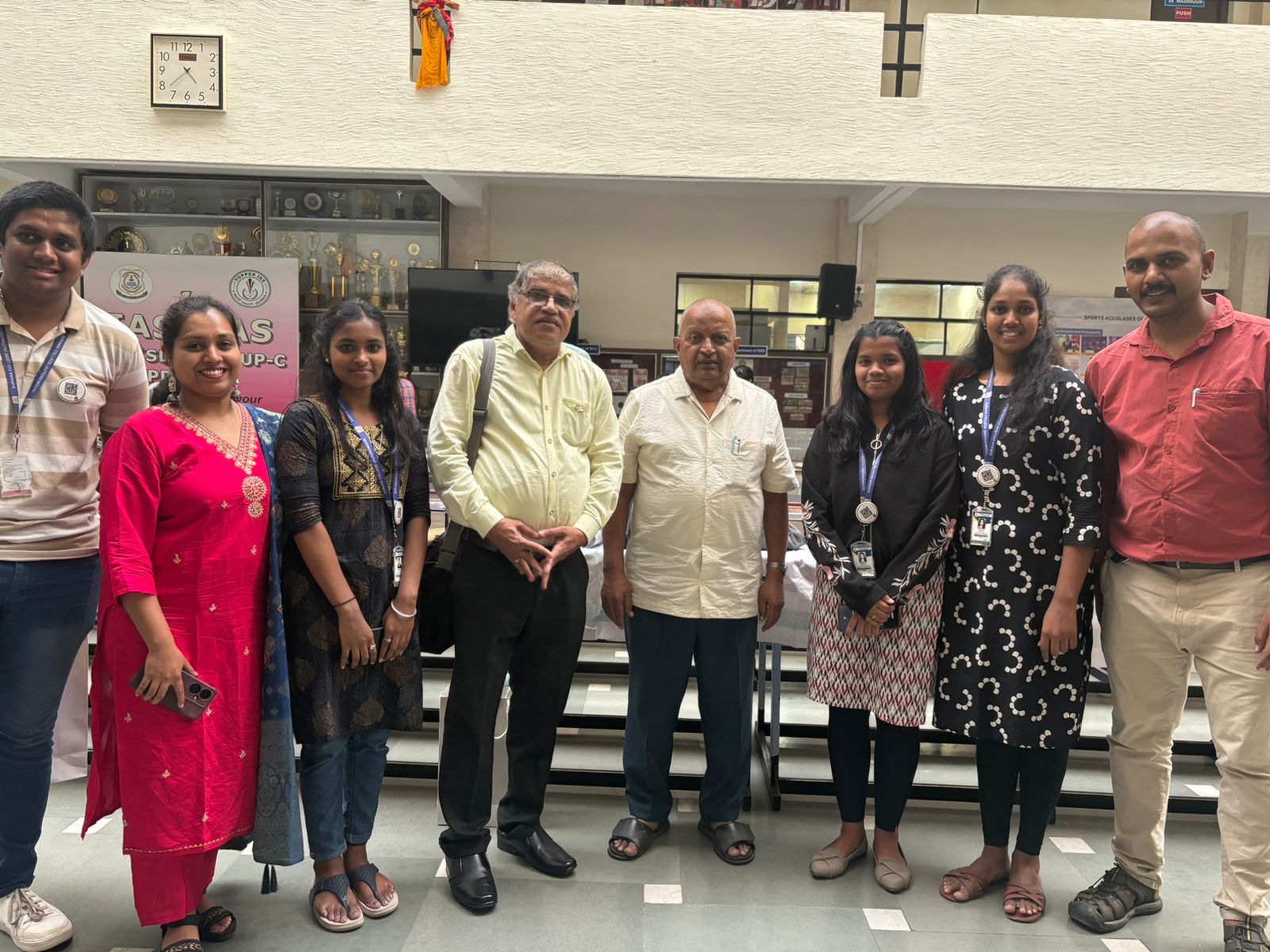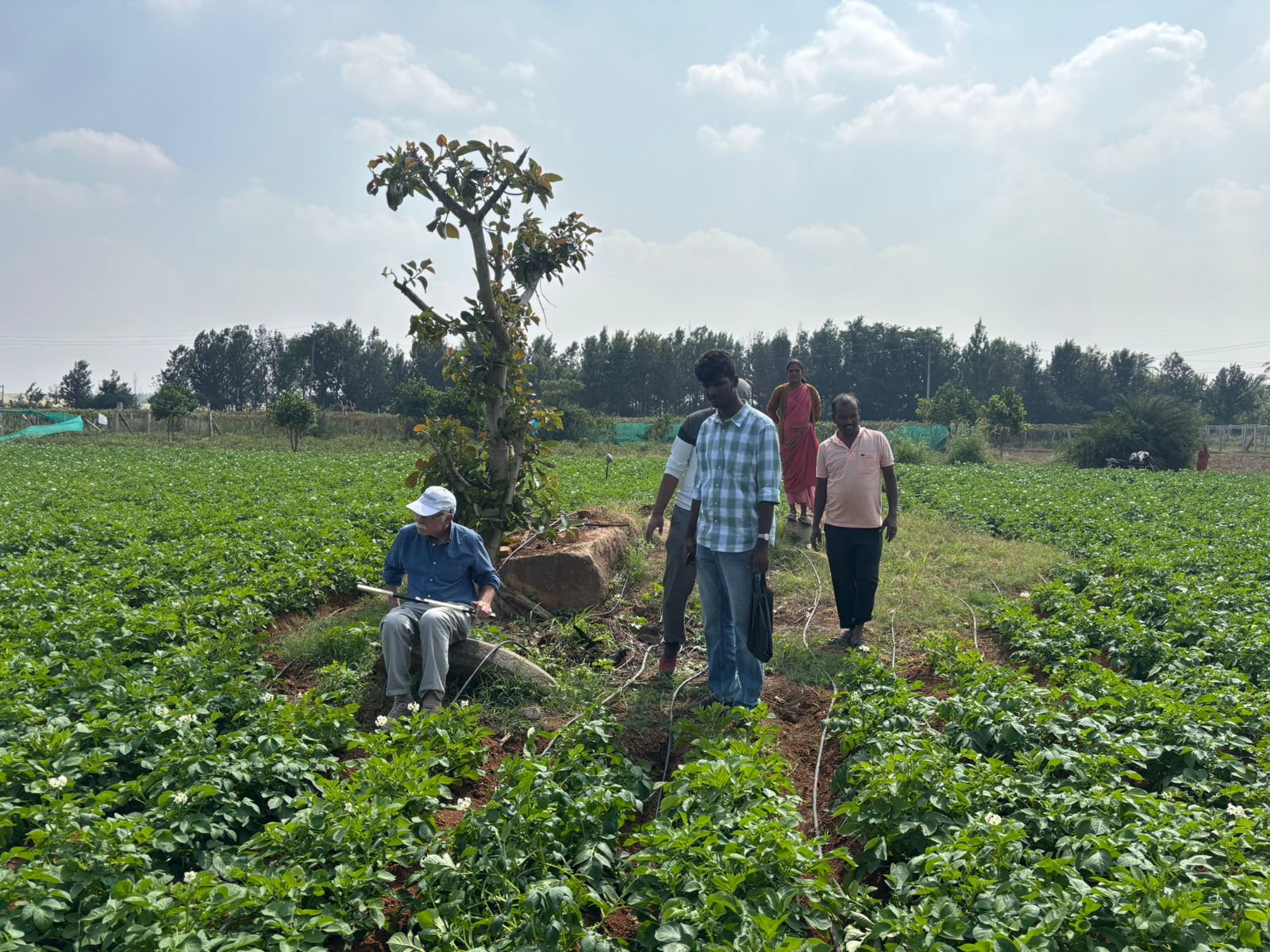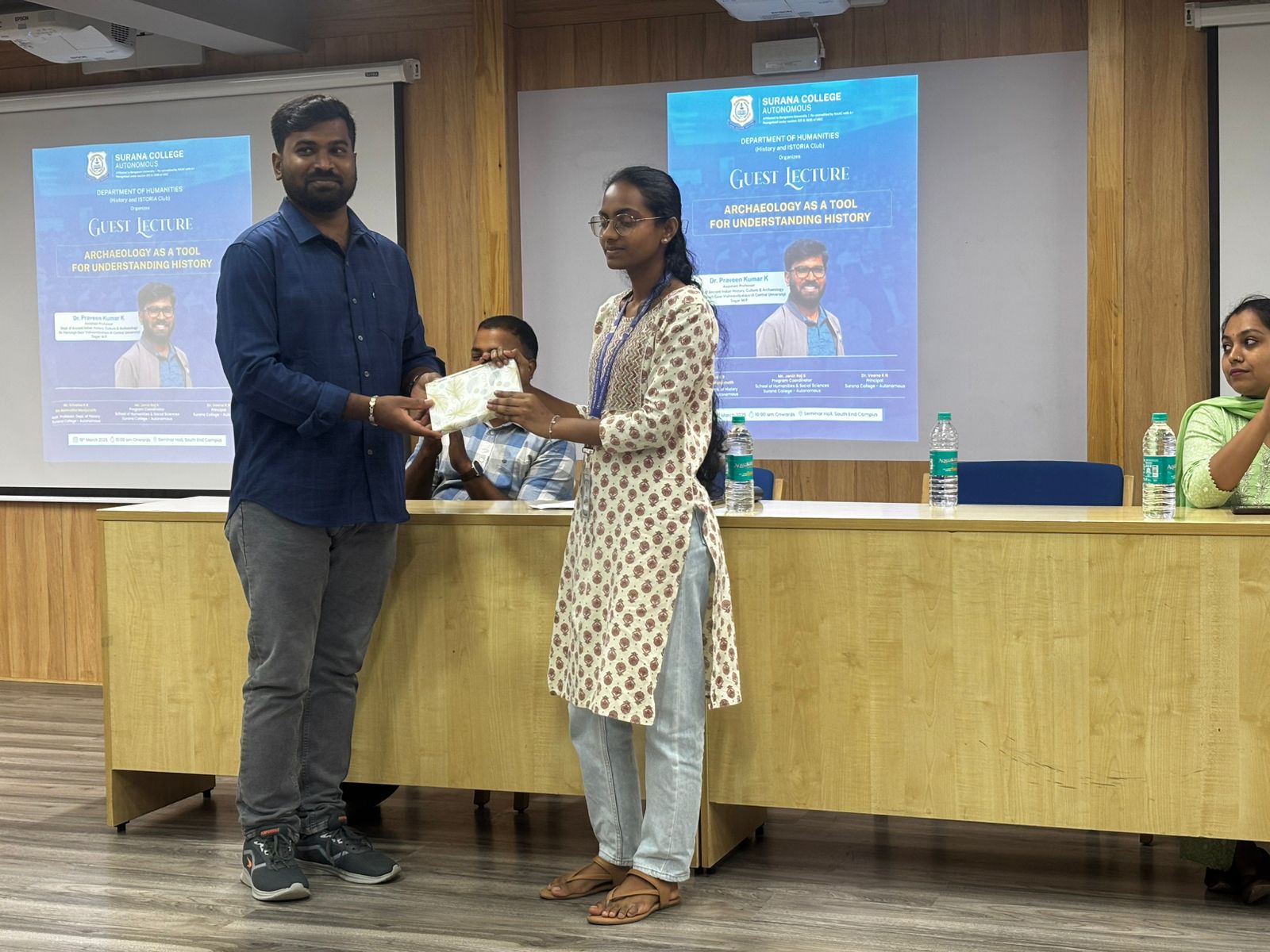Welcome to the Department of Humanities and Social Sciences
At the Department of Humanities and Social Sciences, we provide a dynamic and inclusive academic environment that fosters intellectual curiosity, critical thinking, and interdisciplinary learning. Our department offers a diverse range of undergraduate and postgraduate programs that explore the human experience from multiple perspectives. From the intricacies of human behavior to the complexities of societies and cultures, our programs prepare students to engage with the world in meaningful ways.
Our faculty consists of experts from various fields, and our curriculum is designed to ensure that students are well-equipped with the knowledge, skills, and perspectives necessary for success in a variety of careers. Whether you're interested in writing, understanding human behavior, analyzing economic systems, or exploring the history of societies, the Department of Humanities and Social Sciences offers a range of academic paths that will challenge and inspire you.
Programs offered by the Department of Humanities and Social Sciences
1. Journalism
The Journalism course is designed for students interested in the art and science of storytelling. Our curriculum covers everything from news writing, media ethics, and digital journalism to investigative reporting and media law. Students gain hands-on experience in creating content for print, broadcast, and digital platforms while learning the critical skills necessary to navigate the rapidly evolving media landscape. With an emphasis on ethics, accuracy, and social responsibility, our program prepares students to become informed and impactful journalists who can shape public discourse.
Key Areas of Study:
- 1. News Reporting and Writing
- 2. Digital Journalism and Social Media
- 3. Broadcast Journalism
- 4. Media Ethics and Law
- 5. Investigative Journalism
2. Psychology
Our Psychology course offers students an in-depth understanding of human behavior, mental processes, and the underlying factors that shape both. Through a combination of theoretical learning and practical experience, students explore topics ranging from cognitive processes and emotional intelligence to social behavior and abnormal psychology. With opportunities for internships and research, students are well-prepared for careers in clinical psychology, counselling, human resources, social work, or academia.
Key Areas of Study:
- 1. Cognitive Psychology
- 2. Social Psychology
- 3. Developmental Psychology
- 4. Abnormal Psychology
- 5. Psychological Research Methods
3. Political Science
The Political Science course examines the structures, processes, and impacts of government systems, politics, and international relations. Students explore political theory, the functioning of governments, the role of political parties, the dynamics of elections, and global diplomatic relations. Through the study of both local and global political systems, students are equipped to understand and influence the political landscape, whether in public service, law, international organizations, or political consultancy.
Key Areas of Study:
- 1. Political Theory and Philosophy
- 2. International Relations
- 3. Comparative Politics
- 4. Public Policy and Administration
- 5. Electoral Systems and Voting Behavior
4. Economics
Economics provides students with a thorough understanding of how economies function, how decisions are made, and how economic policies affect society. From microeconomics to macroeconomics, our program encourages critical thinking about both theoretical concepts and real-world applications. Students explore topics such as market structures, economic development, international trade, and monetary policy, preparing them for careers in business, finance, government, and research.
Key Areas of Study:
- 1. Microeconomics and Macroeconomics
- 2. Econometrics and Data Analysis
- 3. International Trade and Finance
- 4. Development Economics
- 5. Economic Policy and Regulation
5. History
The History course offers students an opportunity to study the past in a detailed and critical way. Students explore different historical periods, from ancient civilizations to modern history, and understand how past events have shaped the world we live in today. By analyzing primary sources, historical records, and current historiographical debates, students develop an ability to think critically about the past and its implications for the present and future. Our History graduates pursue careers in teaching, research, public history, and archival work.
Key Areas of Study:
- 1. Ancient and Medieval History
- 2. Modern History and Global Conflicts
- 3. Social and Cultural History
- 4. Historiography and Research Methods
- 5. Public History and Archives
6.Tourism
The Tourism course focuses on the study of the tourism and hospitality industry. It provides students with in-depth knowledge of travel management, tourism marketing, hospitality operations, sustainable tourism, and cultural heritage.
Key Areas of Study:
- 1. Introduction to Tourism & Hospitality
- 2. Tourism Geography & Destinations
- 3.Tourism Products & Services
- 4.Travel Agency & Tour Operations
- 5. Hotel & Resort Management
- Tourism Marketing & Promotion
- Cultural & Heritage Tourism
- Sustainable & Eco-Tourism
- Airline & Airport Management
- Digital Tourism & Travel Technology
- Internship
7.Optional English
The English Literature course is designed for students passionate about literature, language, and the study of cultural expression through written words. Students explore classic works from various genres, periods, and cultures, developing strong analytical, interpretive, and writing skills. Our program encourages students to examine texts from a variety of critical perspectives, including feminist, postcolonial, and psychoanalytic approaches, fostering a deep understanding of literature’s role in shaping society and individual identity.
Key Areas of Study:
- 1. Classical and Modern Literature
- 2. Literary Theory and Criticism
- 3. Creative Writing
- 4. Postcolonial Literature
- 5. Comparative Literature and World Literatures
Why Choose the Department of Humanities and Social Sciences?
 Diverse Programs: We offer a wide range of disciplines that allow you to explore your interests, from journalism and politics to psychology, history, and literature.
Diverse Programs: We offer a wide range of disciplines that allow you to explore your interests, from journalism and politics to psychology, history, and literature. Experienced Faculty: Our department is staffed by knowledgeable and passionate faculty members who are experts in their respective fields.
Experienced Faculty: Our department is staffed by knowledgeable and passionate faculty members who are experts in their respective fields. Critical Thinking and Analytical Skills: The programs are designed to foster critical thinking, analytical reasoning, and problem-solving skills, which are applicable across various professional sectors.
Critical Thinking and Analytical Skills: The programs are designed to foster critical thinking, analytical reasoning, and problem-solving skills, which are applicable across various professional sectors. Interdisciplinary Approach: The department promotes interdisciplinary learning, allowing students to connect ideas and concepts across different domains of study.
Interdisciplinary Approach: The department promotes interdisciplinary learning, allowing students to connect ideas and concepts across different domains of study. Hands-on Learning: With opportunities for internships, research, and practical applications of knowledge, students gain real-world experience that is highly valued by employers.
Hands-on Learning: With opportunities for internships, research, and practical applications of knowledge, students gain real-world experience that is highly valued by employers. Global Perspective: Our programs offer insights into global issues, political systems, economic dynamics, and social structures, preparing graduates to work in diverse environments.
Global Perspective: Our programs offer insights into global issues, political systems, economic dynamics, and social structures, preparing graduates to work in diverse environments.
Vision
The Department of Humanities offers a rigorous education in the humanities and social sciences within a dynamic, collaborative, and inclusive community of learners. Living Surana College’s values of excellence, engagement, integrity, inclusiveness, and self-reflection, we will serve as a national exemplar of public higher education in the liberal arts with a commitment to accessibility and affordability.
Mission
Keeping the core objectives to create academic excellence in fundamental humanities studies, the Department of Humanities aims to encourage advanced teaching-learning processes and quality research at individual, departmental, and institutional levels. It also endeavors to build quality-based knowledge and human resource capacity.
Program Outcomes
- PO 1: Explain the principal theories and concepts in core disciplines of study.
- PO 2: Decipher real time problems to offer feasible solutions
- PO 3: Apply critical thinking, analytical skills and domain specific knowledge for data driven decisions
- PO 4: Exhibit leadership qualities and effectively collaborate with diverse teams to achieve the set outcomes
- PO 5: Communicate proficiently in both oral and written format for professional and personal needs.
- PO 6: Design and participate in activities to promote ethical practices and social sensitivity.
- PO 7: Lead and participate in efforts that cultivate responsible practices and heightened social consciousness
- PO 8: Adapt principles of fairness and equality, fostering an environment of respect and diversity across the humanities
Department of Tourism
The Tourism course focuses on the study of the tourism and hospitality industry. It provides students with in-depth knowledge of travel management, tourism marketing, hospitality operations, sustainable tourism, and cultural heritage.
 Introduction to Tourism & Hospitality
Introduction to Tourism & Hospitality Tourism Geography & Destinations
Tourism Geography & Destinations Tourism Products & Services
Tourism Products & Services Principles of Management
Principles of Management Travel Agency & Tour Operations
Travel Agency & Tour Operations Hotel & Resort Management
Hotel & Resort Management Tourism Marketing & Promotion
Tourism Marketing & Promotion Cultural & Heritage Tourism
Cultural & Heritage Tourism Sustainable & Eco-Tourism
Sustainable & Eco-Tourism Airline & Airport Management
Airline & Airport Management Digital Tourism & Travel Technology
Digital Tourism & Travel Technology Internship
Internship
Department of Journalism
Photography
Photography is the art, science, and practice of capturing light to create images. Using a camera, photographers freeze moments in time, telling stories, expressing emotions, and documenting reality or creativity through visuals. Photography blends technical knowledge with creative expression, and with the rise of digital technology, it has become more accessible to people across all walks of life. From capturing nature and portraits to commercial and event photography, this field offers endless opportunities for exploration and expression.
30-Hour Value Added Programme in Photography – Syllabus
Module 1: Introduction to Photography (3 hours)
 History and evolution of photography
History and evolution of photography Types of photography (portrait, landscape, street, wildlife, product, etc.)
Types of photography (portrait, landscape, street, wildlife, product, etc.) Understanding different genres and famous photographer
Understanding different genres and famous photographer
Module 2: Camera Fundamentals (4 hours)
 Types of cameras: DSLR, mirrorless, point & shoot, smartphone
Types of cameras: DSLR, mirrorless, point & shoot, smartphone Understanding the camera body, lenses, and accessories
Understanding the camera body, lenses, and accessories Exposure triangle: ISO, Aperture, Shutter Speed
Exposure triangle: ISO, Aperture, Shutter Speed White balance, metering modes, focus modes
White balance, metering modes, focus modes
Module 3: Composition Techniques (3 hours)
 Rule of thirds, leading lines, symmetry, framing
Rule of thirds, leading lines, symmetry, framing Depth of field and perspective
Depth of field and perspective Using light creatively (natural and artificial
Using light creatively (natural and artificial
Module 4: Lighting in Photography (3 hours)
 Basics of lighting: hard vs soft light
Basics of lighting: hard vs soft light Direction and colour of light
Direction and colour of light Use of reflectors, diffusers, and flash
Use of reflectors, diffusers, and flash Indoor and outdoor lighting techniques
Indoor and outdoor lighting techniques
Module 5: Practical Shooting Sessions (8 hours)
 Portrait photography (studio and natural light)
Portrait photography (studio and natural light) Landscape and nature photography
Landscape and nature photography Street and documentary photography
Street and documentary photography Low-light and night photography
Low-light and night photography
Module 6: Post-Processing Basics (4 hours)
 Introduction to photo editing software (e.g., Adobe Lightroom, Snapseed
Introduction to photo editing software (e.g., Adobe Lightroom, Snapseed Colour correction and exposure adjustments
Colour correction and exposure adjustments Cropping and retouching
Cropping and retouching Maintaining originality in edits
Maintaining originality in edits
Module 7: Storytelling and Project Work (3 hours)
 Visual storytelling and theme-based photography
Visual storytelling and theme-based photography Planning a photo story
Planning a photo story Ethics and copyrights in photography
Ethics and copyrights in photography Final student project briefing
Final student project briefing
Module 8: Presentation and Review (2 hours)
 Student project presentation
Student project presentation Portfolio review
Portfolio review Feedback and Q & A
Feedback and Q & A Certificates distribution
Certificates distribution
Assessment & Certification
 Continuous assessment through practical work
Continuous assessment through practical work Final mini project with 5–10 edited photos on a chosen theme
Final mini project with 5–10 edited photos on a chosen theme Certificate of completion upon successful participation
Certificate of completion upon successful participation
Adobe Premiere Pro
Adobe Premiere Pro is a professional video editing software used for creating films, videos, social media content, advertisements, and more. It allows editors to cut, trim, and enhance videos, add transitions, music, and effects, and export them in various formats. Widely used in the film industry, YouTube content creation, and digital marketing, Premiere Pro is a powerful tool that blends creativity and technicality, giving creators the ability to tell compelling stories through video.
30-Hour Value Added Programme in Premiere Pro – Syllabus
Module 1: Introduction to Video Editing & Premiere Pro Interface (3 hours)
 What is video editing? Importance and applications
What is video editing? Importance and applications Introduction to Adobe Premiere Pro interface
Introduction to Adobe Premiere Pro interface Setting up a project and understanding workspace
Setting up a project and understanding workspace File formats and project organization
File formats and project organization
Module 2: Working with Media Files (3 hours)
 Importing video, audio, and images
Importing video, audio, and images Creating and managing bins (folders)
Creating and managing bins (folders) Understanding the timeline and source monitor
Understanding the timeline and source monitor Basic editing tools: Razor, Selection, Slip, Slide, Ripple
Basic editing tools: Razor, Selection, Slip, Slide, Ripple
Module 3: Basic Editing Techniques (4 hours)
 Cutting, trimming, and arranging clips
Cutting, trimming, and arranging clips Using transitions and effects
Using transitions and effects Adjusting video speed (slow motion, time-lapse
Adjusting video speed (slow motion, time-lapse Syncing video with audio
Syncing video with audio
Module 4: Audio Editing and Sound Design (4 hours)
 Working with background music and sound effects
Working with background music and sound effects Audio transitions and fading techniques
Audio transitions and fading techniques Cleaning up audio using essential sound panel
Cleaning up audio using essential sound panel Voiceover and syncing techniques
Voiceover and syncing techniques
Module 5: Titles, Text, and Graphics (3 hours)
 Creating basic and animated titles
Creating basic and animated titles Using Essential Graphics Panel
Using Essential Graphics Panel Lower thirds and credit roll
Lower thirds and credit roll Integrating branding elements (logos, watermarks)
Integrating branding elements (logos, watermarks)
Module 6: Colour Correction and Grading (3 hours
 Introduction to Lumetri Colour panel
Introduction to Lumetri Colour panel Correcting white balance and exposure
Correcting white balance and exposure Colour grading for mood and tone
Colour grading for mood and tone Using LUTs (Look-Up Tables
Using LUTs (Look-Up Tables
Module 7: Effects and Motion (4 hours)
 Adding and managing video effects
Adding and managing video effects Basic keyframing and animation
Basic keyframing and animation Creating zoom-ins, pans, and transitions
Creating zoom-ins, pans, and transitions Working with green screen (chroma keying)
Working with green screen (chroma keying)
Module 8: Project Work & Rendering (3 hours)
 Final editing of a short video project
Final editing of a short video project Export settings for social media, YouTube, or film
Export settings for social media, YouTube, or film Compression techniques and output quality
Compression techniques and output quality Subtitles and closed captions
Subtitles and closed captions
Module 9: Final Presentation & Evaluation (3 hours)
 Student project showcase
Student project showcase Peer and faculty feedback
Peer and faculty feedback Q & A session and career tips
Q & A session and career tips Certificate distribution
Certificate distribution
Assessment & Certification
 Hands-on project: Create a 1–3 minute edited video
Hands-on project: Create a 1–3 minute edited video Continuous evaluation through module-wise assignments
Continuous evaluation through module-wise assignments Certificate awarded after successful completion and submission
Certificate awarded after successful completion and submission
What is Adobe Photoshop?
Adobe Photoshop is the world’s leading image editing software used by photographers, designers, and digital artists. It allows users to manipulate photos, create graphics, retouch images, and design everything from posters to social media content. Whether you're editing a portrait or designing a logo, Photoshop is an essential tool for visual creativity.
30-Hour Value Added Programme in Photoshop – Syllabus
Module 1: Introduction to Photoshop & Interface (3 hours)
 What is Photoshop and its applications?
What is Photoshop and its applications? Exploring the workspace, tools, and panels
Exploring the workspace, tools, and panels Setting up new projects (canvas, resolution, color modes)
Setting up new projects (canvas, resolution, color modes) Understanding file types (PSD, JPG, PNG, TIFF)
Understanding file types (PSD, JPG, PNG, TIFF)
Module 2: Working with Layers and Selections (4 hours)
 Understanding layers, groups, and layer masks
Understanding layers, groups, and layer masks Selection tools: Marquee, Lasso, Magic Wand, Quick Selection
Selection tools: Marquee, Lasso, Magic Wand, Quick Selection Using transform tools (scale, rotate, distort
Using transform tools (scale, rotate, distort Layer styles and blending modes
Layer styles and blending modes
Module 3: Image Correction & Retouching (4 hours)
 Adjusting brightness, contrast, hue, saturation
Adjusting brightness, contrast, hue, saturation Using the clone stamp, healing brush, and patch tool
Using the clone stamp, healing brush, and patch tool Removing blemishes, objects, and backgrounds
Removing blemishes, objects, and backgrounds Working with Camera Raw filter
Working with Camera Raw filter
Module 4: Text and Shape Design (3 hours)
 Adding and styling tex
Adding and styling tex Typography essentials for design
Typography essentials for design Creating vector shapes and icons
Creating vector shapes and icons Designing posters, flyers, and banners
Designing posters, flyers, and banners
Module 5: Colour and Effects (4 hours)
 Using gradients, patterns, and custom brushes
Using gradients, patterns, and custom brushes Applying filters and effects
Applying filters and effects Introduction to smart objects
Introduction to smart objects Colour grading and photo filters
Colour grading and photo filters
Module 6: Compositing and Creative Projects (4 hours)
 Combining multiple images into one (compositing)
Combining multiple images into one (compositing) Using perspective and lighting for realism
Using perspective and lighting for realism Creative photo manipulations
Creative photo manipulations Concept-based mini projects
Concept-based mini projects
Module 7: Digital Painting & Art Basics (3 hours)
 Brush settings and digital painting tools
Brush settings and digital painting tools Painting from reference images
Painting from reference images Layer techniques for illustration
Layer techniques for illustration Intro to tablet use (if available)
Intro to tablet use (if available)
Module 8: Portfolio Design & Final Project (3 hours)
 Creating a basic design/photography portfolio
Creating a basic design/photography portfolio Exporting in correct formats for print and web
Exporting in correct formats for print and web Presentation of final projects
Presentation of final projects Feedback, Q & A, and certification
Feedback, Q & A, and certification
Assessment & Certification
 Hands-on assessments after each module
Hands-on assessments after each module Final project: Design a poster, photo manipulation, or digital artwork
Final project: Design a poster, photo manipulation, or digital artwork Certificate awarded upon completion and project review
Certificate awarded upon completion and project review
What is Adobe InDesign?
Adobe InDesign is a professional desktop publishing and page layout software used to design and publish high-quality documents like magazines, brochures, flyers, eBooks, posters, and more. It allows for precise control over typography, layout, and design elements, making it an essential tool for graphic designers, marketers, and publishers
30-Hour Value Added Programme in Adobe InDesign – Syllabu
Module 1: Introduction to InDesign & Interface (3 hours)
 What is Adobe InDesign and its uses
What is Adobe InDesign and its uses Exploring the workspace: tools, panels, and menus
Exploring the workspace: tools, panels, and menus Creating and saving new documents
Creating and saving new documents Understanding units, resolution, and document presets (print/digital)
Understanding units, resolution, and document presets (print/digital)
Module 2: Working with Pages & Layouts (4 hours)
 Master pages and page numbering
Master pages and page numbering Page size, margins, columns, and bleed settings
Page size, margins, columns, and bleed settings Guides and grid systems
Guides and grid systems Multi-page document management
Multi-page document management
Module 3: Typography & Text Formatting (4 hours)
 Inserting and styling text frames
Inserting and styling text frames Working with paragraph and character styles
Working with paragraph and character styles Text wrapping, justification, and alignment
Text wrapping, justification, and alignment Best practices in editorial design (magazines, brochures)
Best practices in editorial design (magazines, brochures)
Module 4: Images and Graphics (4 hours)
 Placing images and using image frames
Placing images and using image frames Fitting and alignment options
Fitting and alignment options Working with Photoshop/Illustrator files in InDesign
Working with Photoshop/Illustrator files in InDesign Resolution, formats, and linked vs embedded images
Resolution, formats, and linked vs embedded images
Module 5: Colors, Swatches, and Design Elements (3 hours)
 Creating and applying color swatches
Creating and applying color swatches Using gradients and tints
Using gradients and tints Strokes, fills, and transparency
Strokes, fills, and transparency Design consistency with styles and templates
Design consistency with styles and templates
Module 6: Tables, Shapes, and Interactive Elements (3 hours)
 Creating and formatting tables
Creating and formatting tables Drawing and editing shapes
Drawing and editing shapes Adding buttons, hyperlinks, and basic interactivity for eBooks
Adding buttons, hyperlinks, and basic interactivity for eBooks Creating design templates for reuse
Creating design templates for reuse
Module 7: Print & Digital Publishing (4 hours)
 Pre-flight checks and preparing files for print
Pre-flight checks and preparing files for print Exporting as PDF (print, web, interactive)
Exporting as PDF (print, web, interactive) Packaging files for press
Packaging files for press Creating PDFs for eBooks and interactive documents
Creating PDFs for eBooks and interactive documents
Module 8: Portfolio Project & Review (5 hours)
 Final project: Design a multi-page magazine/brochure
Final project: Design a multi-page magazine/brochure Applying layout, image, and typography principles
Applying layout, image, and typography principles Presentation of student projects
Presentation of student projects Peer feedback, Q & A, and certification distribution
Peer feedback, Q & A, and certification distribution
Assessment & Certification
 Project-based assessment (e.g., magazine or catalogue design)
Project-based assessment (e.g., magazine or catalogue design) Evaluation based on layout, design consistency, and export quality
Evaluation based on layout, design consistency, and export quality Certificate of Completion after successful participation and submission
Certificate of Completion after successful participation and submission

Name: Mr. Jenin Raj S
Designation: Programme Coordinator School of Humanities and Social Sciences
Qualification: MJMC, MPhil, PGDPR, (PhD)
Teaching Experience: 14 Years
.png)
Name: Mr. Vaishnav V S
Designation: Assistant Professor
Qualification: MA MCJ, NET
Teaching Experience: 8 Years
.png)
Name: Ms.Celeste Charles
Designation: Assistant Professor and Content writer
Qualification: MA English , MA Journalism
Teaching Experience: 1 Years

Name: Mr. Karthik S
Designation: Assistant Professor
Qualification: MA MCJ
Teaching Experience: 1 Years
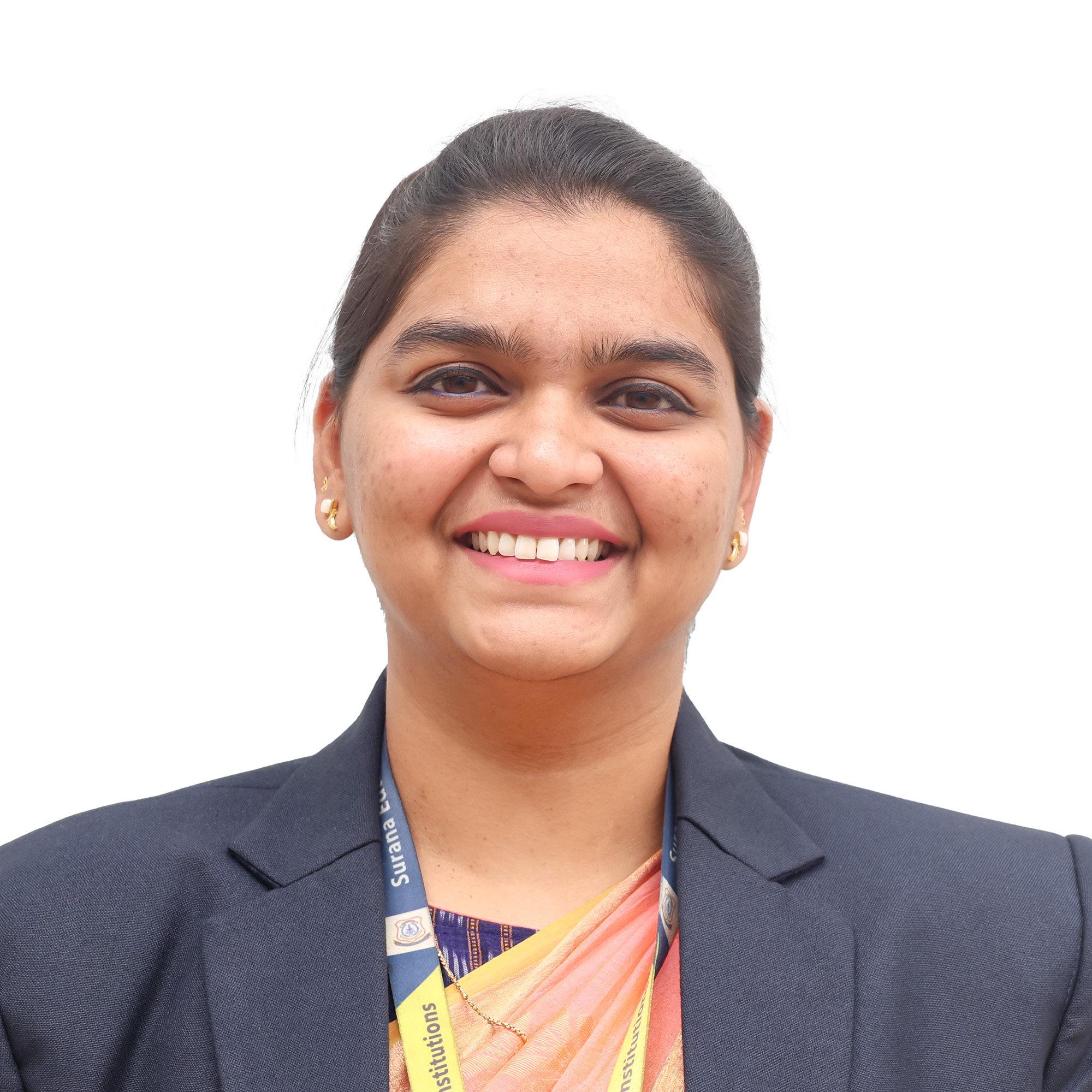
Name: Ms.Ruth Sukruthi.N
Designation: Domain i/c
Qualification: MSc Psychology
Teaching Experience: 4 Years
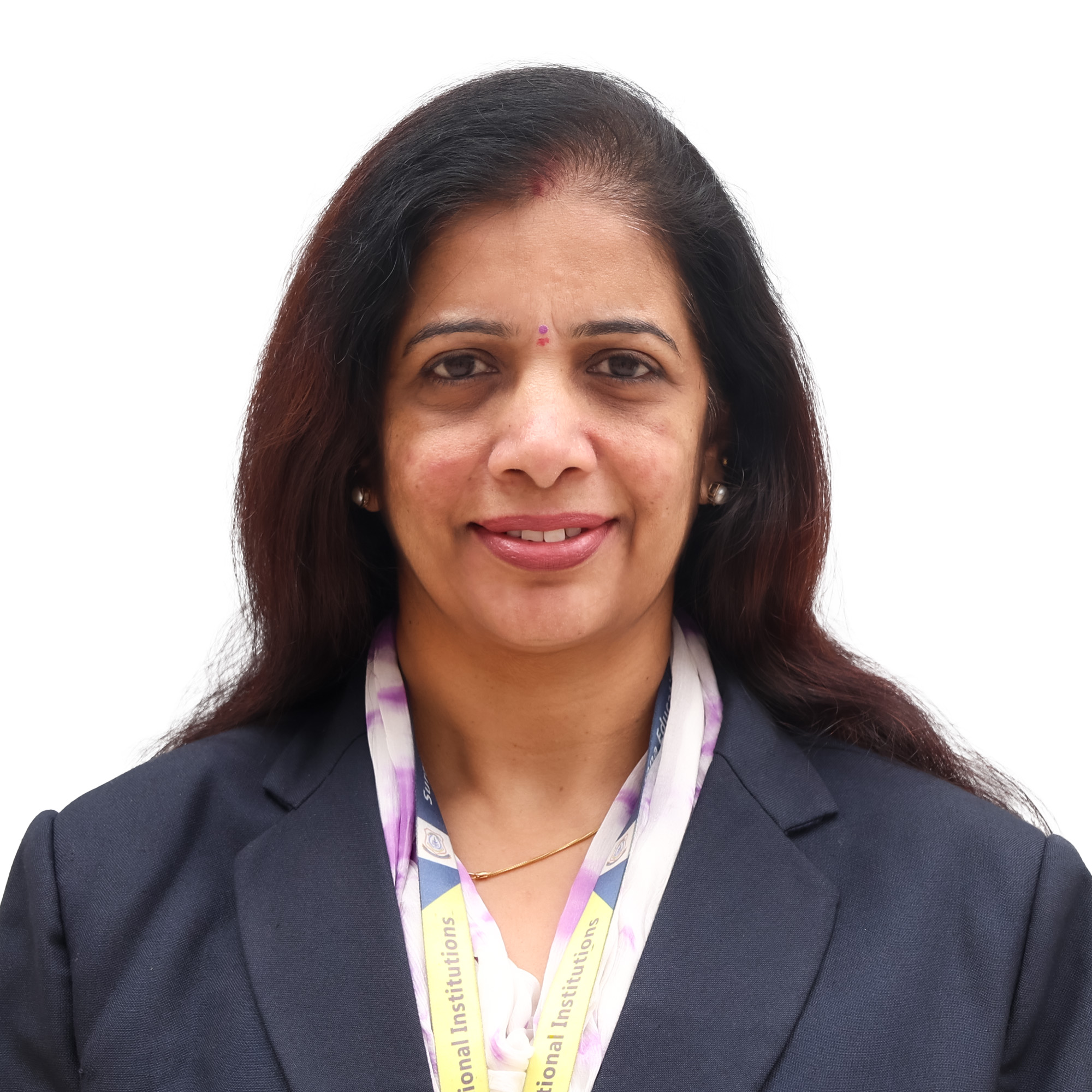
Name: Ms. Chandrika
Designation: Assistant Professor
Qualification: MSc Applied Psychology, MBA (HR), NET, SLET, CTET, B.Ed
Teaching Experience: 2 Years
.png)
Name: Mr. Srivatsa K R
Designation: Domain i/c
Qualification: MA in Ancient History, (PhD)
Teaching Experience: 3 Years
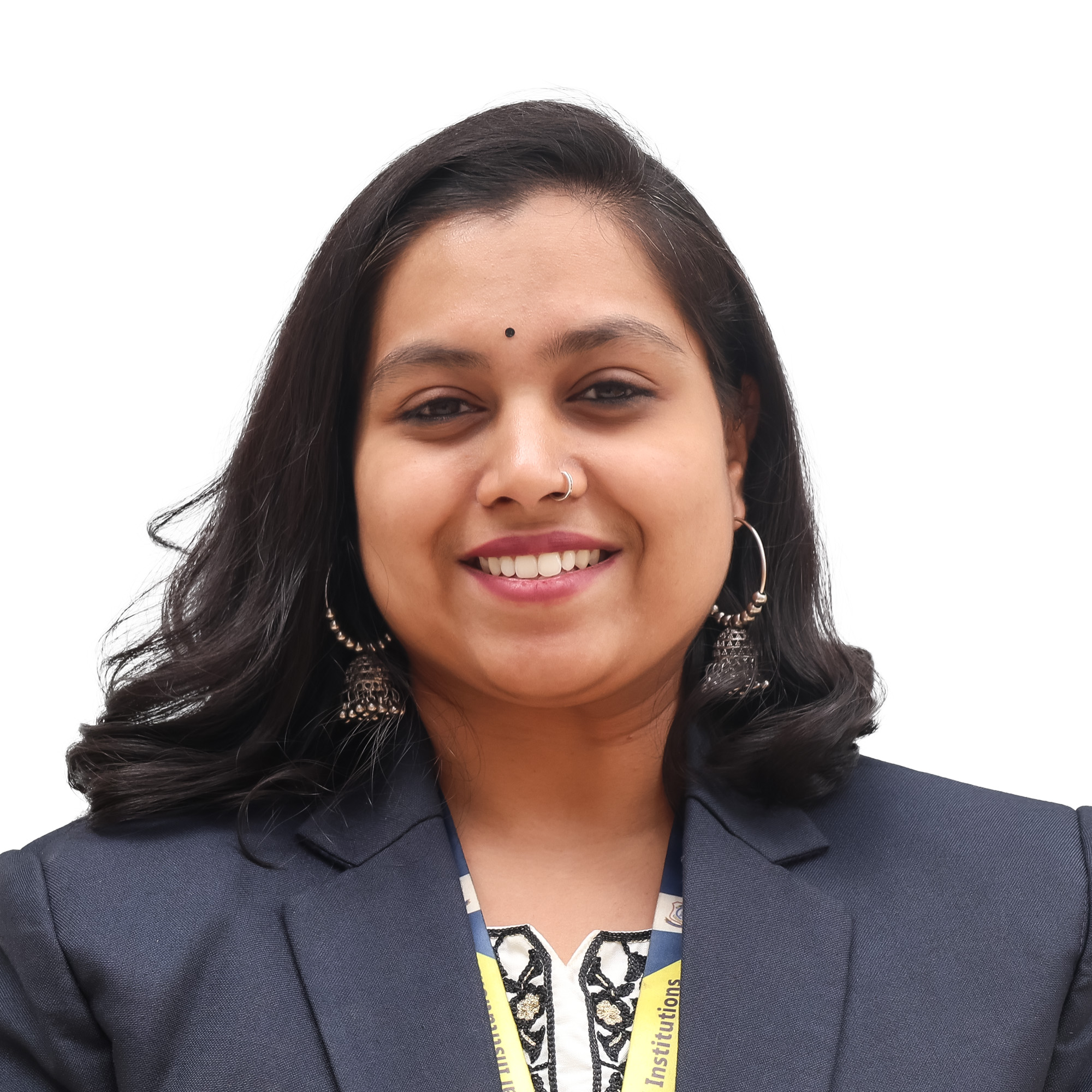
Name: Ms. Namratha Manjunath
Designation: Assistant Professor
Qualification: MA in Ancient History
Teaching Experience: 2 Years
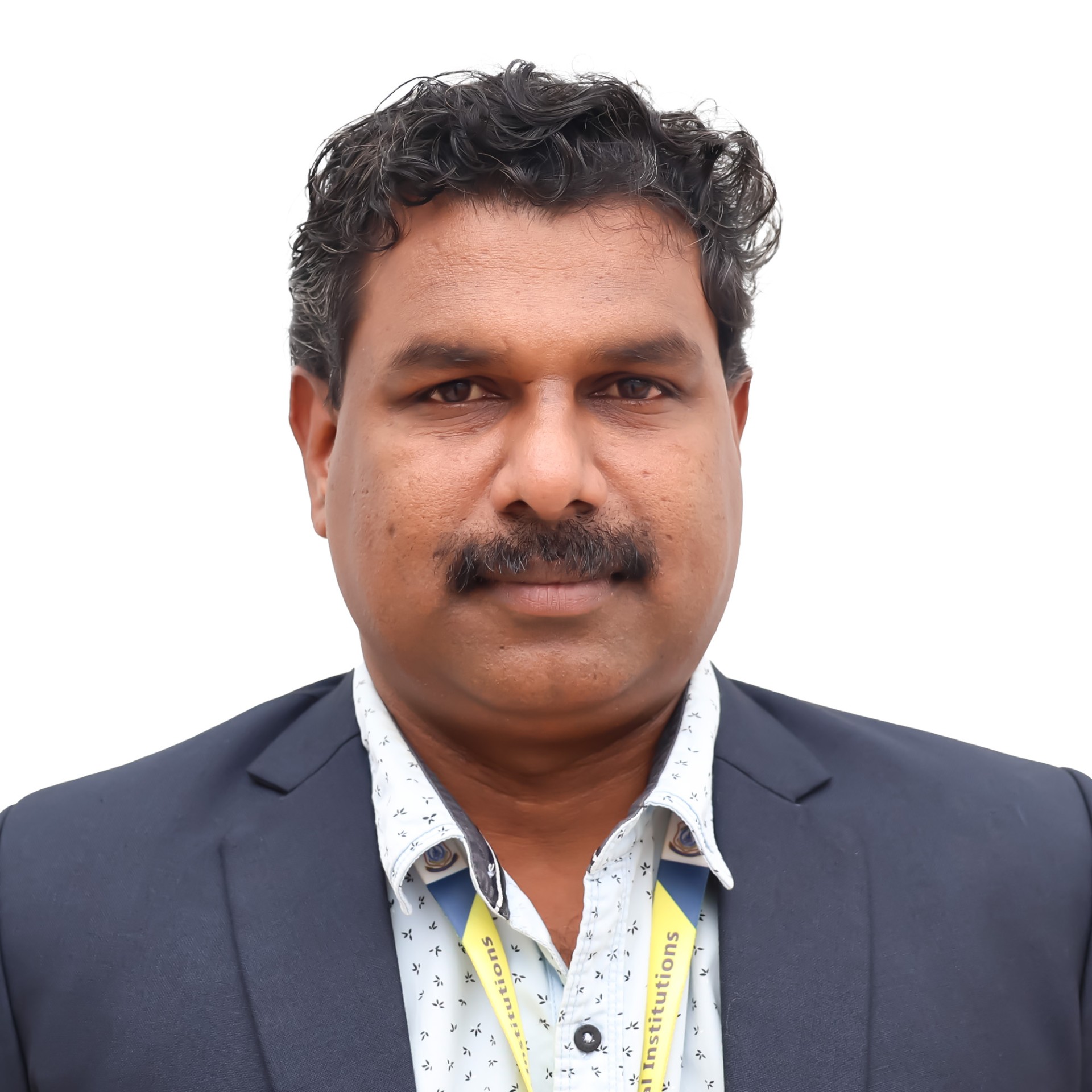
Name: Dr. Rajeesh. C S
Designation: Domain i/c
Qualification: MA Political Science, MPhil, NET
Teaching Experience: 4 Years
.png)
Name: Ms. Ashwini Hegde
Designation: Assistant Professor
Qualification: MA Political Science, BEd
Teaching Experience: 5 Years

Name: Mr. Girisha. K
Designation: Domain i/c
Qualification: MA Economics, KSET
Teaching Experience: 16 Years
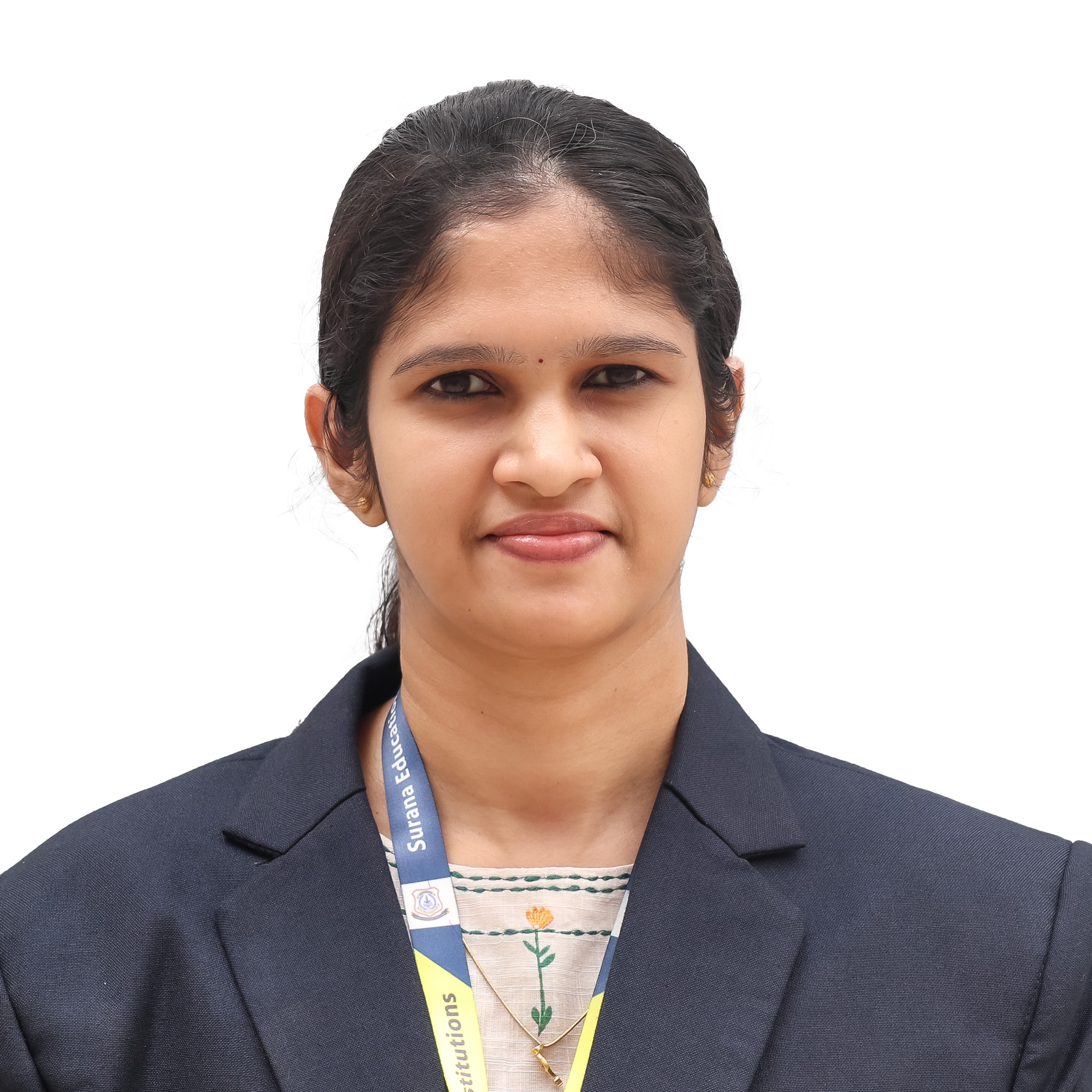
Name: Ms.Shilpa. M
Designation: Domain i/c
Qualification: MTA, Mphil
Teaching Experience: 5 Years
.png)
Name: Ms.Neepa Premodh
Designation: Adjunct Faculty
Qualification: MTA, NET, IATA, (Phd )
Teaching Experience: 8 Years
| Sl No | Event Name | Date | Brochure |
| 1 | IBM ICE Day | 18-10-2024 | View |
| 2 | IBM Business Analytics | 19-02-2025 | View |
| 3 | Study abroad | 12-03-2025 | View |
| 4 | Gender sensitivity | 07-03-2025 | View |
| 5 | Hustle Hunt 1.0 | 11-03-2025 | View |
| 6 | Jugaad Junction 1.0 | | View |
| 7 | NGO visit | | View |
| 8 | NISM | 03-02-2025 | View |
Tourism Activites
Department of Journalism
Dept of communication Golden Jubilee Celebration
World press Day
Bridge course
Digital Marketing
World Radio day
MoU Udyanavani
Department of History
History Department Courses
| Sl. No | Semester | Title of the Paper |
| 1 | 1 | History of Ancient India (Prehistory to 1206 CE) |
| 2 | 2 | History of Karnataka (From earliest times to 1565 CE) |
| 3 | 3 | Political History of India (From Indus Culture up to 1206) |
| 4 | 3 | Bangalore in Time and Space |
| 5 | 4 | Cultural History of India Up To 1206 CE |
| 6 | 4 | History of Medieval India |
| 7 | 5 | History of Tourism in India |
| 8 | 5 | European History: 1789 to 1945 CE |
| 9 | 5 | History of Modern India |
| 10 | 6 | Contemporary History of India since 1947 |
| 11 | 6 | Process of Urbanization in India |
| 12 | 6 | History of United States of America (c.1776 – 1945) |
Economics Department Courses
| Sl. No | Semester | Title of the Paper |
| 1 | 1 | Microeconomics |
| 2 | 2 | Macro Economics |
| 3 | 3 | Micro Economics |
| 4 | 3 | Agriculture Economics |
| 5 | 4 | Macro Economics |
| 6 | 4 | Monetary Economics |
| 7 | 5 | Development Economics |
| 8 | 5 | Economics of Human Resource Management |
| 9 | 5 | Public Economics |
| 10 | 6 | Indian Public Finance |
| 11 | 6 | International Economics |
| 12 | 6 | Environmental Economics |
Political Science Department Courses
| Sl. No | Semester | Title of the Paper |
| 1 | 1 | Fundamental Concepts in Political Science |
| 2 | 2 | Western Political Thought |
| 3 | 3 | Indian Government and Politics |
| 4 | 3 | Parliamentary Procedures in India |
| 5 | 4 | Modern Political Analysis |
| 6 | 4 | Ancient Indian Political Ideas and Institutions |
| 7 | 5 | International Relations-Basic Concepts |
| 8 | 5 | Comparative Government and Politics |
| 9 | 5 | Administrative Theories |
| 10 | 6 | International Relations – Theoretical Aspects |
| 11 | 6 | Public Policy Analysis |
| 12 | 6 | Political Economy of India |
Tourism Department Courses
| Sl. No | Semester | Title of the Paper |
| 1 | 1 | Fundamentals of Tourism Industry |
| 2 | 2 | Tourism Products of India |
| 3 | 3 | Tourism Marketing |
| 4 | 3 | Entrepreneurship Skills for Tourism |
| 5 | 4 | Tourism Planning & Policy |
| 6 | 4 | Destination Planning & Development |
| 7 | 5 | Hospitality Management |
| 8 | 5 | Global Tourism |
| 9 | 5 | Medical Tourism |
| 10 | 6 | Art & Architecture of South India |
| 11 | 6 | Indian Culture & Heritage |
| 12 | 6 | Legal Framework for Tourism |
Psychology Department Courses
| Sl. No | Semester | Title of the Paper |
| 1 | 1 | Basic Psychological Processes I-Practicals |
| 2 | 1 | Basic Psychological Processes I |
| 3 | 2 | Basic Psychological Processes -II |
| 4 | 2 | Basic Psychological Processes -II PRACTICAL |
| 5 | 3 | Child Development |
| 6 | 3 | Child Development PRACTICAL |
| 7 | 4 | Developmental Psychology |
| 8 | 4 | Developmental Psychology PRACTICAL |
| 9 | 5 | Corporate Psychology |
| 10 | 5 | Social Psychology |
| 11 | 5 | Corporate Psychology PRACTICAL |
| 12 | 5 | Social Psychology PRACTICAL |
| 13 | 6 | Abnormal Psychology |
| 14 | 6 | Abnormal Psychology PRACTICAL |
| 15 | 6 | Human Resource Management |
| 16 | 6 | Human Resource Management PRACTICAL |
Journalism Department Courses
| Sl NO | SEMESTER | PAPERS | TITLE OF THE PAPER |
| 1 | I | PAPER 1 | TOURISM FOUNDATION AND HISTORY |
| 2 | II | PAPER -II | TOURISM PRODUCT |
| 3 | III | PAPER -III | TRAVEL AGENCY AND TOUR OPERATOR ORGANIZATION |
| 4 | IV | PAPER -IV | TOURISM MANAGEMENT |
| 5 | V | PAPER -V | TOURISM POLICY |
| | | PAPER VI | TOURISM IN INDIA |
| 6 | VI | PAPER -VII | ENTERPRENEURSHIP DEVELOPMENT PROGRAM |
| | | PAPER VIII | EMERGING CONCEPTS OF EFFECTIVE TOURISM DEVELOPMENT |
DEPARTMENT OF JOURNALISM
| Sl. No | Semester | Title of the Paper |
| 1 | 1 | Introduction to Communication and Media |
| 2 | 1 | Introduction to Communication and Media (P) |
| 3 | 2 | Print Media |
| 4 | 2 | Print Media (P) |
| 5 | 3 | News Reporting and Analysis |
| 6 | 3 | News Reporting and Analysis (P) |
| 7 | 4 | News Processing and Editing |
| 8 | 4 | News Processing and Editing (P) |
| 9 | 5 | Fundamentals of Radio and TV |
| 10 | 5 | Fundamentals of Radio and TV (P) |
| 11 | 5 | Media Laws and Ethics |
| 12 | 5 | Media Laws and Ethics (P) |
| 13 | 6 | Introduction to Digital Media |
| 14 | 6 | Introduction to Digital Media (P) |
| 15 | 6 | Advertising and Corporate Communication |
| 16 | 6 | Advertising and Corporate Communication (P) |
![]() Diverse Programs: We offer a wide range of disciplines that allow you to explore your interests, from journalism and politics to psychology, history, and literature.
Diverse Programs: We offer a wide range of disciplines that allow you to explore your interests, from journalism and politics to psychology, history, and literature.![]() Experienced Faculty: Our department is staffed by knowledgeable and passionate faculty members who are experts in their respective fields.
Experienced Faculty: Our department is staffed by knowledgeable and passionate faculty members who are experts in their respective fields.![]() Critical Thinking and Analytical Skills: The programs are designed to foster critical thinking, analytical reasoning, and problem-solving skills, which are applicable across various professional sectors.
Critical Thinking and Analytical Skills: The programs are designed to foster critical thinking, analytical reasoning, and problem-solving skills, which are applicable across various professional sectors.![]() Interdisciplinary Approach: The department promotes interdisciplinary learning, allowing students to connect ideas and concepts across different domains of study.
Interdisciplinary Approach: The department promotes interdisciplinary learning, allowing students to connect ideas and concepts across different domains of study.![]() Hands-on Learning: With opportunities for internships, research, and practical applications of knowledge, students gain real-world experience that is highly valued by employers.
Hands-on Learning: With opportunities for internships, research, and practical applications of knowledge, students gain real-world experience that is highly valued by employers.![]() Global Perspective: Our programs offer insights into global issues, political systems, economic dynamics, and social structures, preparing graduates to work in diverse environments.
Global Perspective: Our programs offer insights into global issues, political systems, economic dynamics, and social structures, preparing graduates to work in diverse environments.![]() Introduction to Tourism & Hospitality
Introduction to Tourism & Hospitality![]() Tourism Geography & Destinations
Tourism Geography & Destinations![]() Tourism Products & Services
Tourism Products & Services![]() Principles of Management
Principles of Management![]() Travel Agency & Tour Operations
Travel Agency & Tour Operations![]() Hotel & Resort Management
Hotel & Resort Management![]() Tourism Marketing & Promotion
Tourism Marketing & Promotion![]() Cultural & Heritage Tourism
Cultural & Heritage Tourism![]() Sustainable & Eco-Tourism
Sustainable & Eco-Tourism![]() Airline & Airport Management
Airline & Airport Management![]() Digital Tourism & Travel Technology
Digital Tourism & Travel Technology![]() Internship
Internship![]() History and evolution of photography
History and evolution of photography![]() Types of photography (portrait, landscape, street, wildlife, product, etc.)
Types of photography (portrait, landscape, street, wildlife, product, etc.)![]() Understanding different genres and famous photographer
Understanding different genres and famous photographer![]() Types of cameras: DSLR, mirrorless, point & shoot, smartphone
Types of cameras: DSLR, mirrorless, point & shoot, smartphone![]() Understanding the camera body, lenses, and accessories
Understanding the camera body, lenses, and accessories![]() Exposure triangle: ISO, Aperture, Shutter Speed
Exposure triangle: ISO, Aperture, Shutter Speed![]() White balance, metering modes, focus modes
White balance, metering modes, focus modes![]() Rule of thirds, leading lines, symmetry, framing
Rule of thirds, leading lines, symmetry, framing![]() Depth of field and perspective
Depth of field and perspective![]() Using light creatively (natural and artificial
Using light creatively (natural and artificial![]() Basics of lighting: hard vs soft light
Basics of lighting: hard vs soft light![]() Direction and colour of light
Direction and colour of light![]() Use of reflectors, diffusers, and flash
Use of reflectors, diffusers, and flash![]() Indoor and outdoor lighting techniques
Indoor and outdoor lighting techniques![]() Portrait photography (studio and natural light)
Portrait photography (studio and natural light)![]() Landscape and nature photography
Landscape and nature photography![]() Street and documentary photography
Street and documentary photography![]() Low-light and night photography
Low-light and night photography![]() Introduction to photo editing software (e.g., Adobe Lightroom, Snapseed
Introduction to photo editing software (e.g., Adobe Lightroom, Snapseed![]() Colour correction and exposure adjustments
Colour correction and exposure adjustments![]() Cropping and retouching
Cropping and retouching![]() Maintaining originality in edits
Maintaining originality in edits![]() Visual storytelling and theme-based photography
Visual storytelling and theme-based photography![]() Planning a photo story
Planning a photo story![]() Ethics and copyrights in photography
Ethics and copyrights in photography![]() Final student project briefing
Final student project briefing![]() Student project presentation
Student project presentation![]() Portfolio review
Portfolio review![]() Feedback and Q & A
Feedback and Q & A![]() Certificates distribution
Certificates distribution![]() Continuous assessment through practical work
Continuous assessment through practical work![]() Final mini project with 5–10 edited photos on a chosen theme
Final mini project with 5–10 edited photos on a chosen theme![]() Certificate of completion upon successful participation
Certificate of completion upon successful participation![]() What is video editing? Importance and applications
What is video editing? Importance and applications![]() Introduction to Adobe Premiere Pro interface
Introduction to Adobe Premiere Pro interface![]() Setting up a project and understanding workspace
Setting up a project and understanding workspace![]() File formats and project organization
File formats and project organization![]() Importing video, audio, and images
Importing video, audio, and images![]() Creating and managing bins (folders)
Creating and managing bins (folders)![]() Understanding the timeline and source monitor
Understanding the timeline and source monitor![]() Basic editing tools: Razor, Selection, Slip, Slide, Ripple
Basic editing tools: Razor, Selection, Slip, Slide, Ripple![]() Cutting, trimming, and arranging clips
Cutting, trimming, and arranging clips![]() Using transitions and effects
Using transitions and effects![]() Adjusting video speed (slow motion, time-lapse
Adjusting video speed (slow motion, time-lapse![]() Syncing video with audio
Syncing video with audio![]() Working with background music and sound effects
Working with background music and sound effects![]() Audio transitions and fading techniques
Audio transitions and fading techniques![]() Cleaning up audio using essential sound panel
Cleaning up audio using essential sound panel![]() Voiceover and syncing techniques
Voiceover and syncing techniques![]() Creating basic and animated titles
Creating basic and animated titles![]() Using Essential Graphics Panel
Using Essential Graphics Panel![]() Lower thirds and credit roll
Lower thirds and credit roll![]() Integrating branding elements (logos, watermarks)
Integrating branding elements (logos, watermarks)![]() Introduction to Lumetri Colour panel
Introduction to Lumetri Colour panel![]() Correcting white balance and exposure
Correcting white balance and exposure![]() Colour grading for mood and tone
Colour grading for mood and tone![]() Using LUTs (Look-Up Tables
Using LUTs (Look-Up Tables![]() Adding and managing video effects
Adding and managing video effects![]() Basic keyframing and animation
Basic keyframing and animation![]() Creating zoom-ins, pans, and transitions
Creating zoom-ins, pans, and transitions![]() Working with green screen (chroma keying)
Working with green screen (chroma keying)![]() Final editing of a short video project
Final editing of a short video project![]() Export settings for social media, YouTube, or film
Export settings for social media, YouTube, or film![]() Compression techniques and output quality
Compression techniques and output quality![]() Subtitles and closed captions
Subtitles and closed captions![]() Student project showcase
Student project showcase![]() Peer and faculty feedback
Peer and faculty feedback![]() Q & A session and career tips
Q & A session and career tips![]() Certificate distribution
Certificate distribution![]() Hands-on project: Create a 1–3 minute edited video
Hands-on project: Create a 1–3 minute edited video![]() Continuous evaluation through module-wise assignments
Continuous evaluation through module-wise assignments![]() Certificate awarded after successful completion and submission
Certificate awarded after successful completion and submission![]() What is Photoshop and its applications?
What is Photoshop and its applications?![]() Exploring the workspace, tools, and panels
Exploring the workspace, tools, and panels![]() Setting up new projects (canvas, resolution, color modes)
Setting up new projects (canvas, resolution, color modes)![]() Understanding file types (PSD, JPG, PNG, TIFF)
Understanding file types (PSD, JPG, PNG, TIFF)![]() Understanding layers, groups, and layer masks
Understanding layers, groups, and layer masks![]() Selection tools: Marquee, Lasso, Magic Wand, Quick Selection
Selection tools: Marquee, Lasso, Magic Wand, Quick Selection![]() Using transform tools (scale, rotate, distort
Using transform tools (scale, rotate, distort![]() Layer styles and blending modes
Layer styles and blending modes![]() Adjusting brightness, contrast, hue, saturation
Adjusting brightness, contrast, hue, saturation![]() Using the clone stamp, healing brush, and patch tool
Using the clone stamp, healing brush, and patch tool![]() Removing blemishes, objects, and backgrounds
Removing blemishes, objects, and backgrounds![]() Working with Camera Raw filter
Working with Camera Raw filter![]() Adding and styling tex
Adding and styling tex![]() Typography essentials for design
Typography essentials for design![]() Creating vector shapes and icons
Creating vector shapes and icons![]() Designing posters, flyers, and banners
Designing posters, flyers, and banners![]() Using gradients, patterns, and custom brushes
Using gradients, patterns, and custom brushes![]() Applying filters and effects
Applying filters and effects![]() Introduction to smart objects
Introduction to smart objects![]() Colour grading and photo filters
Colour grading and photo filters![]() Combining multiple images into one (compositing)
Combining multiple images into one (compositing)![]() Using perspective and lighting for realism
Using perspective and lighting for realism![]() Creative photo manipulations
Creative photo manipulations![]() Concept-based mini projects
Concept-based mini projects![]() Brush settings and digital painting tools
Brush settings and digital painting tools![]() Painting from reference images
Painting from reference images![]() Layer techniques for illustration
Layer techniques for illustration![]() Intro to tablet use (if available)
Intro to tablet use (if available)![]() Creating a basic design/photography portfolio
Creating a basic design/photography portfolio![]() Exporting in correct formats for print and web
Exporting in correct formats for print and web![]() Presentation of final projects
Presentation of final projects![]() Feedback, Q & A, and certification
Feedback, Q & A, and certification![]() Hands-on assessments after each module
Hands-on assessments after each module![]() Final project: Design a poster, photo manipulation, or digital artwork
Final project: Design a poster, photo manipulation, or digital artwork![]() Certificate awarded upon completion and project review
Certificate awarded upon completion and project review![]() What is Adobe InDesign and its uses
What is Adobe InDesign and its uses![]() Exploring the workspace: tools, panels, and menus
Exploring the workspace: tools, panels, and menus![]() Creating and saving new documents
Creating and saving new documents![]() Understanding units, resolution, and document presets (print/digital)
Understanding units, resolution, and document presets (print/digital)![]() Master pages and page numbering
Master pages and page numbering![]() Page size, margins, columns, and bleed settings
Page size, margins, columns, and bleed settings![]() Guides and grid systems
Guides and grid systems![]() Multi-page document management
Multi-page document management![]() Inserting and styling text frames
Inserting and styling text frames![]() Working with paragraph and character styles
Working with paragraph and character styles![]() Text wrapping, justification, and alignment
Text wrapping, justification, and alignment![]() Best practices in editorial design (magazines, brochures)
Best practices in editorial design (magazines, brochures)![]() Placing images and using image frames
Placing images and using image frames![]() Fitting and alignment options
Fitting and alignment options![]() Working with Photoshop/Illustrator files in InDesign
Working with Photoshop/Illustrator files in InDesign![]() Resolution, formats, and linked vs embedded images
Resolution, formats, and linked vs embedded images![]() Creating and applying color swatches
Creating and applying color swatches![]() Using gradients and tints
Using gradients and tints![]() Strokes, fills, and transparency
Strokes, fills, and transparency![]() Design consistency with styles and templates
Design consistency with styles and templates![]() Creating and formatting tables
Creating and formatting tables![]() Drawing and editing shapes
Drawing and editing shapes![]() Adding buttons, hyperlinks, and basic interactivity for eBooks
Adding buttons, hyperlinks, and basic interactivity for eBooks![]() Creating design templates for reuse
Creating design templates for reuse![]() Pre-flight checks and preparing files for print
Pre-flight checks and preparing files for print![]() Exporting as PDF (print, web, interactive)
Exporting as PDF (print, web, interactive)![]() Packaging files for press
Packaging files for press![]() Creating PDFs for eBooks and interactive documents
Creating PDFs for eBooks and interactive documents![]() Final project: Design a multi-page magazine/brochure
Final project: Design a multi-page magazine/brochure![]() Applying layout, image, and typography principles
Applying layout, image, and typography principles![]() Presentation of student projects
Presentation of student projects![]() Peer feedback, Q & A, and certification distribution
Peer feedback, Q & A, and certification distribution![]() Project-based assessment (e.g., magazine or catalogue design)
Project-based assessment (e.g., magazine or catalogue design)![]() Evaluation based on layout, design consistency, and export quality
Evaluation based on layout, design consistency, and export quality![]() Certificate of Completion after successful participation and submission
Certificate of Completion after successful participation and submission
.png)
.png)



.png)


.png)


.png)

.jpeg)
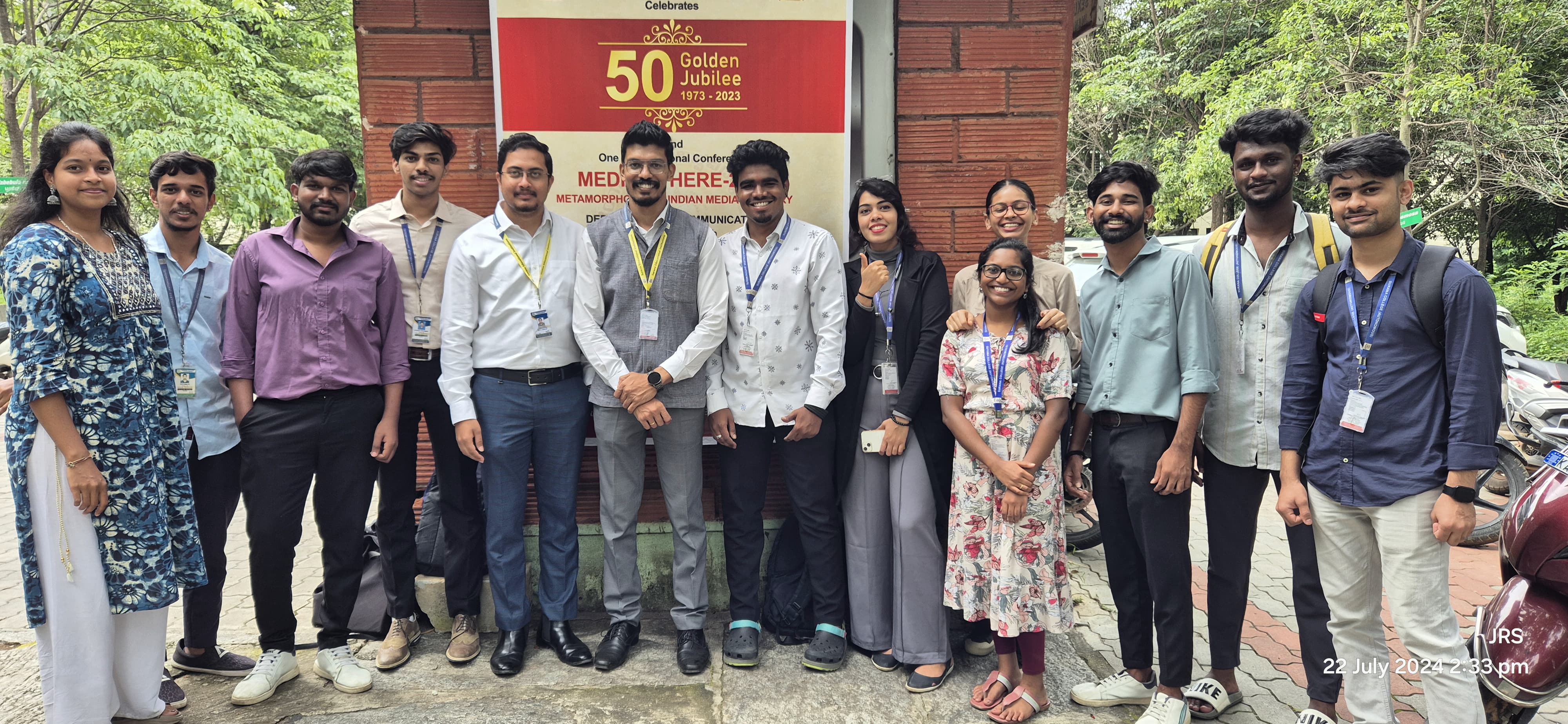
.png)
.jpeg)
.jpeg)

.jpeg)
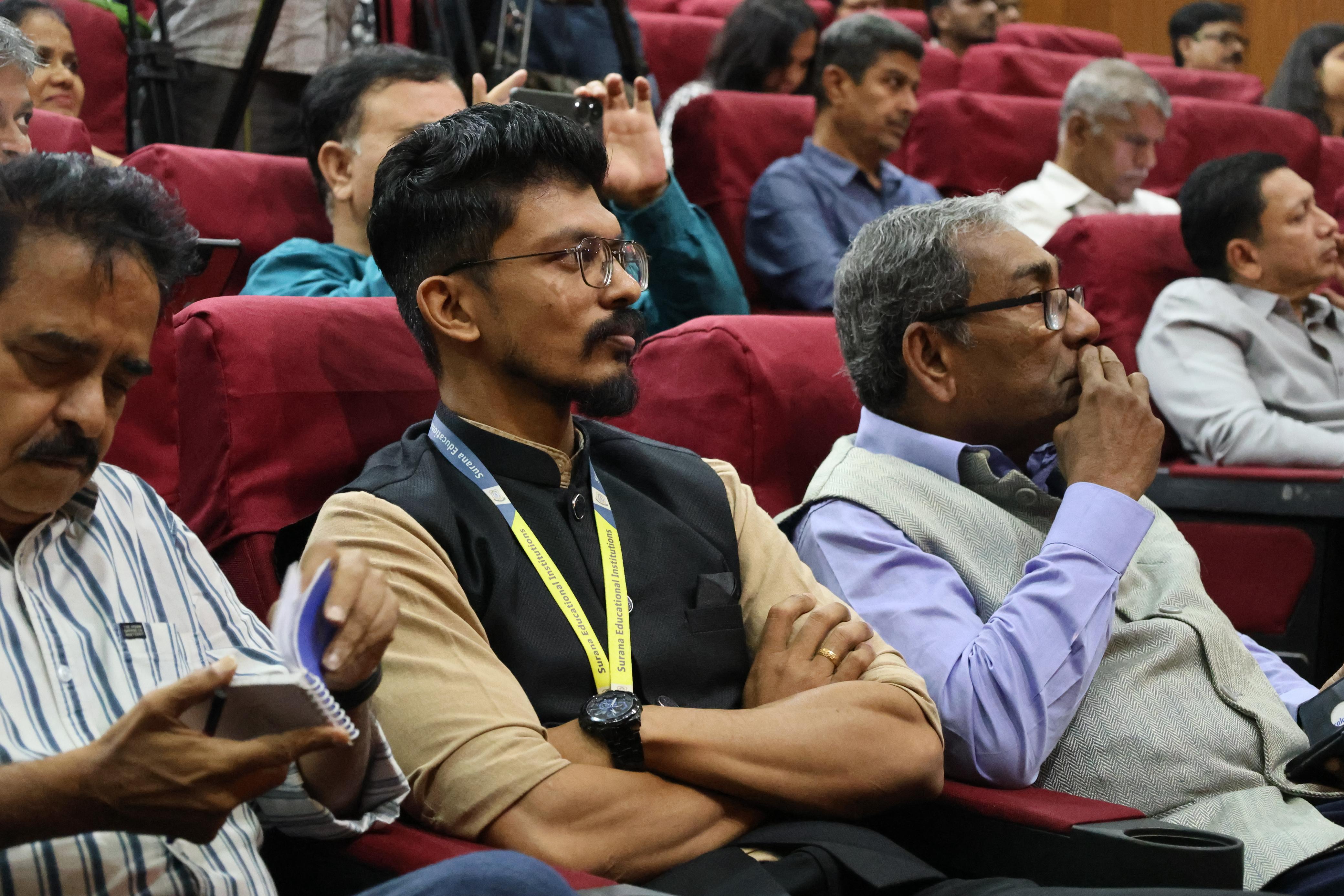
.jpeg)
.jpeg)
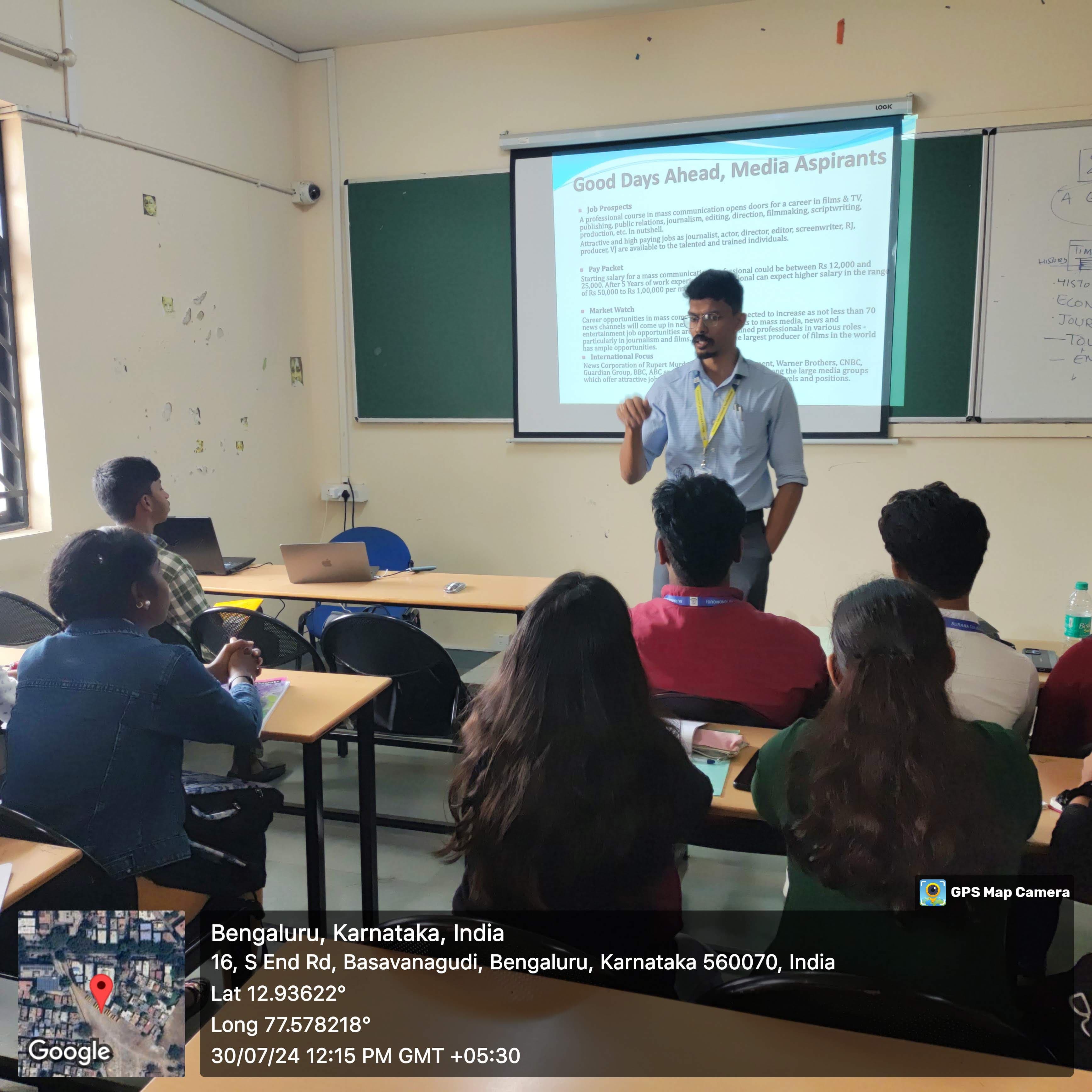
.jpeg)
.jpeg)
.jpg)
.jpg)
.jpg)
.jpg)
.png)
.png)
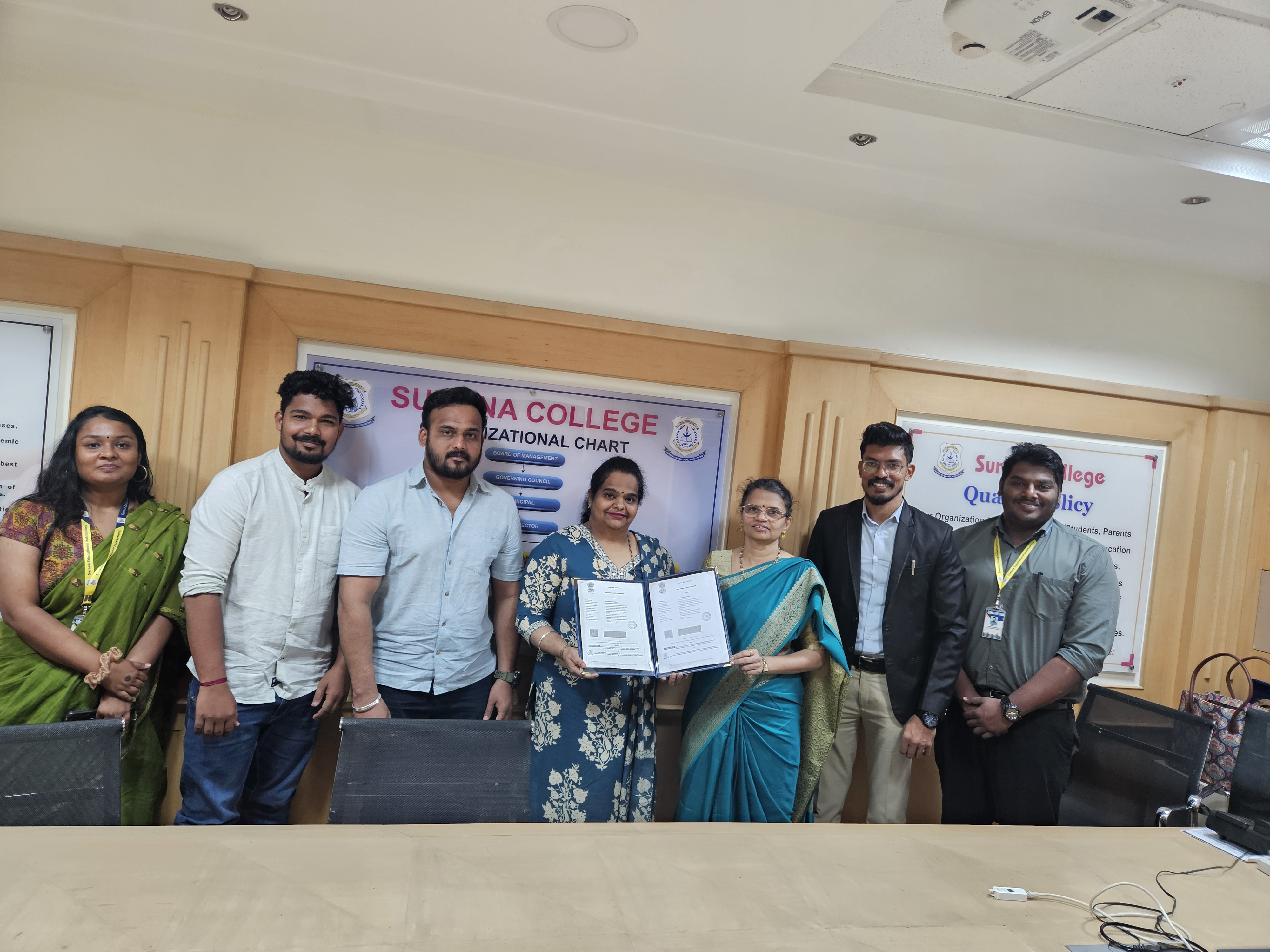
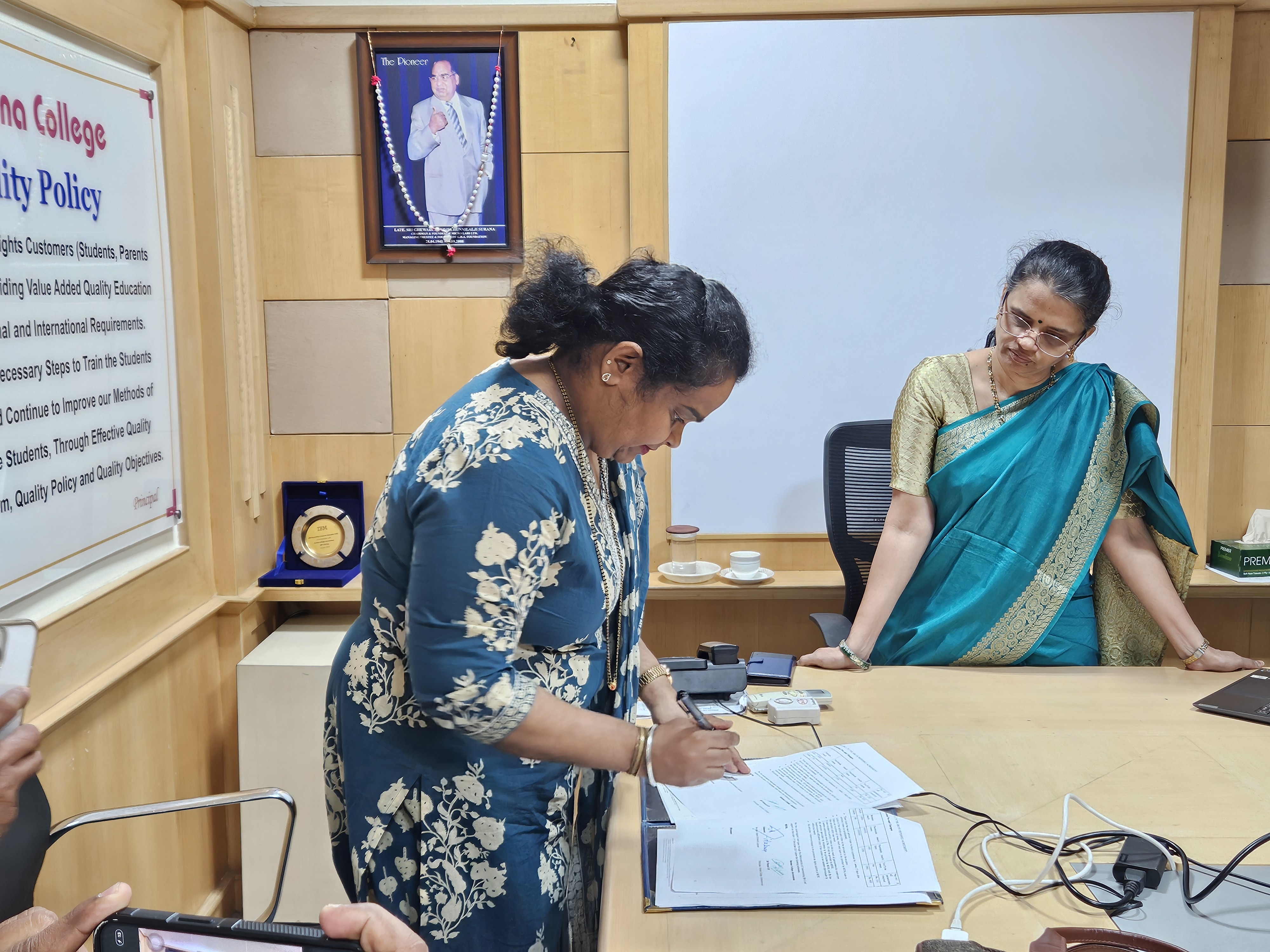

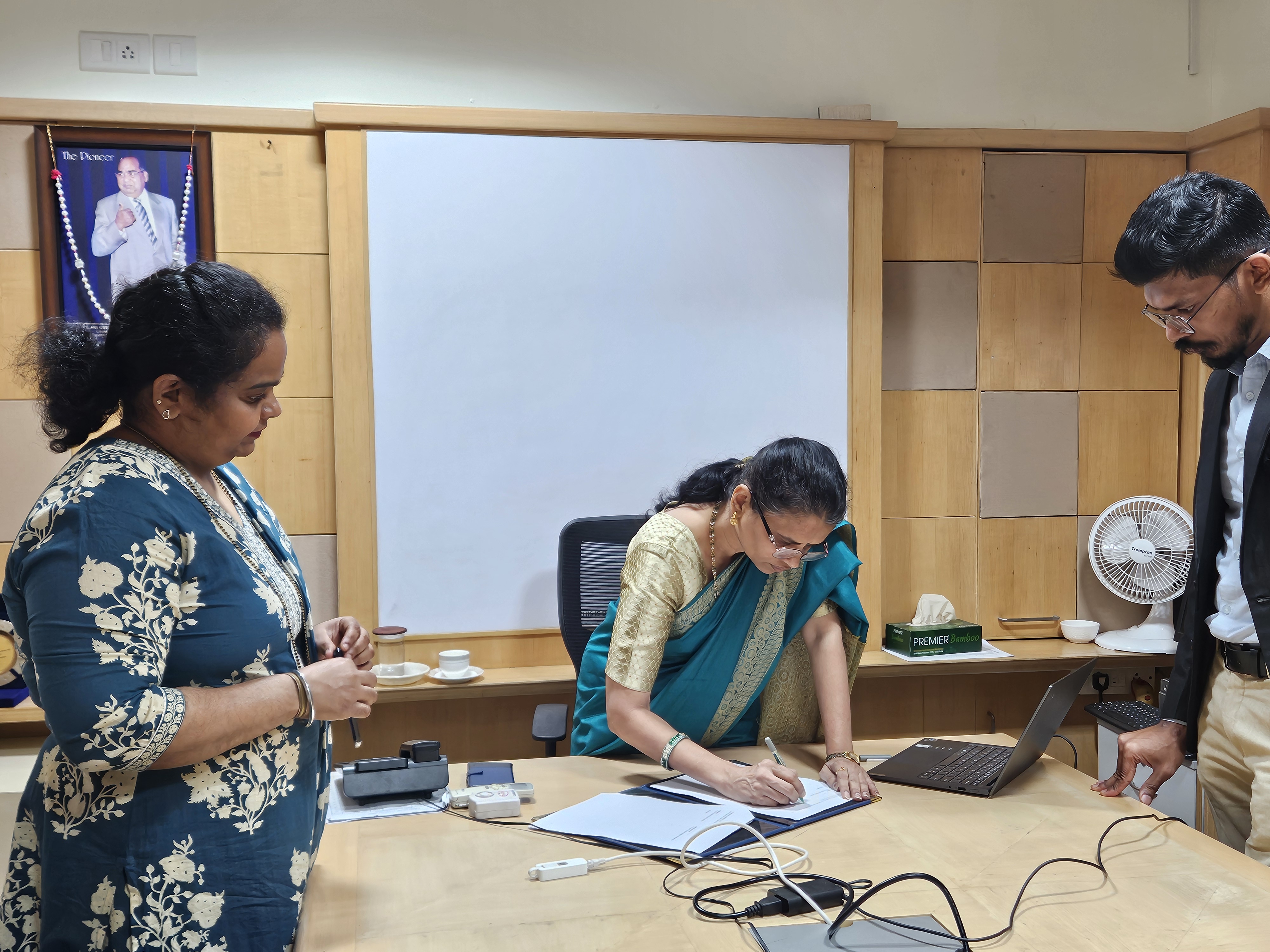
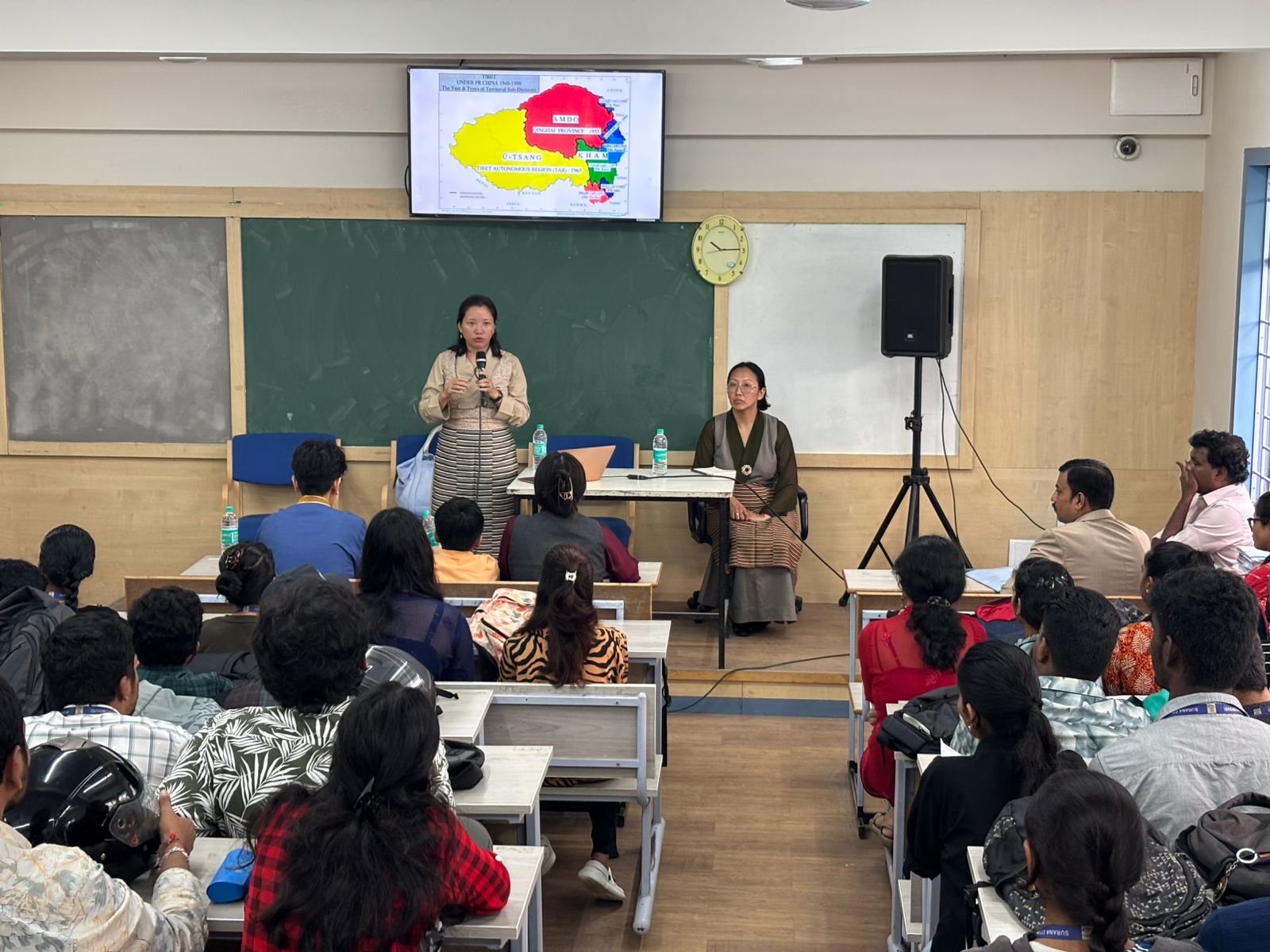
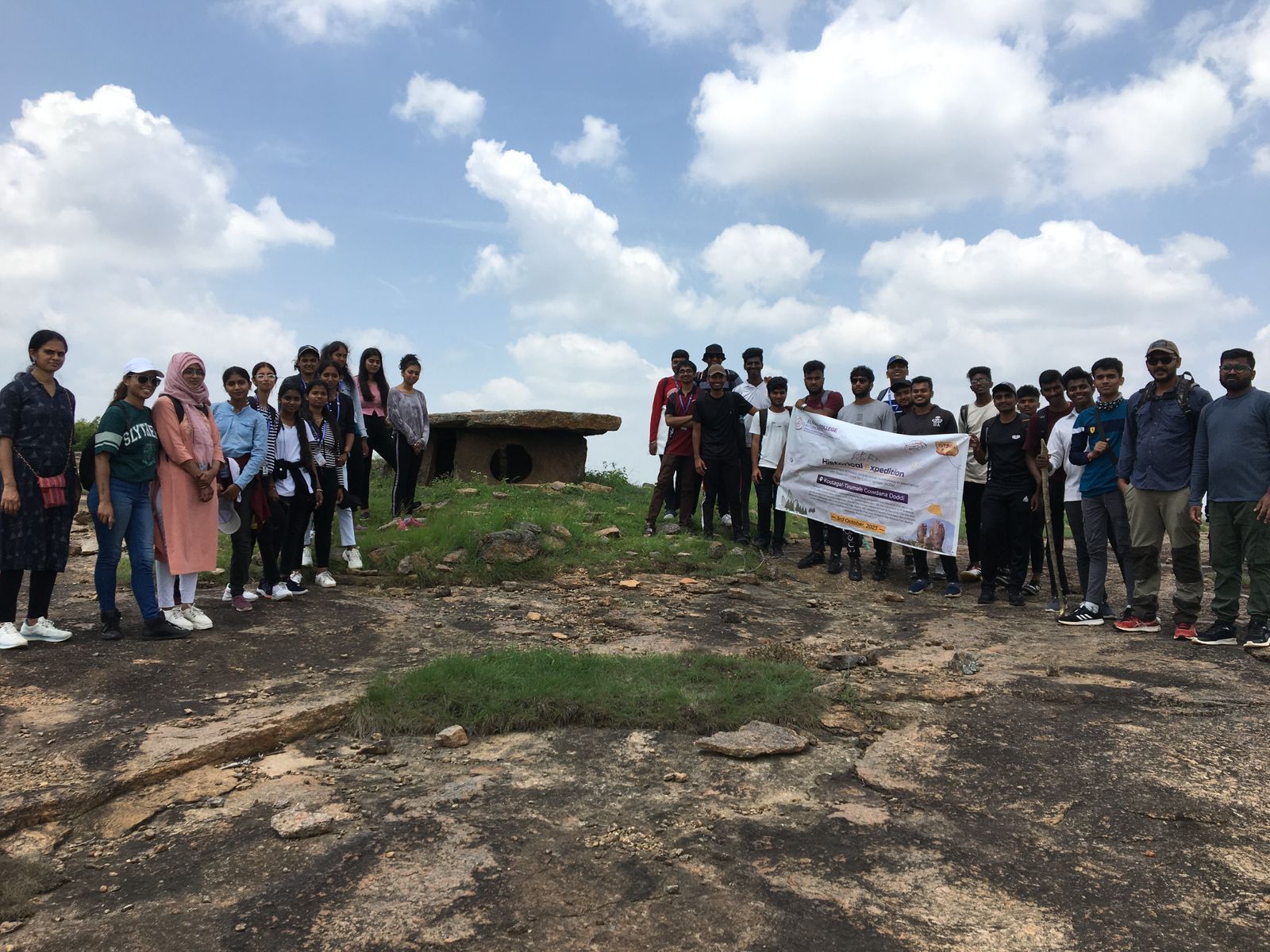
.jpeg)
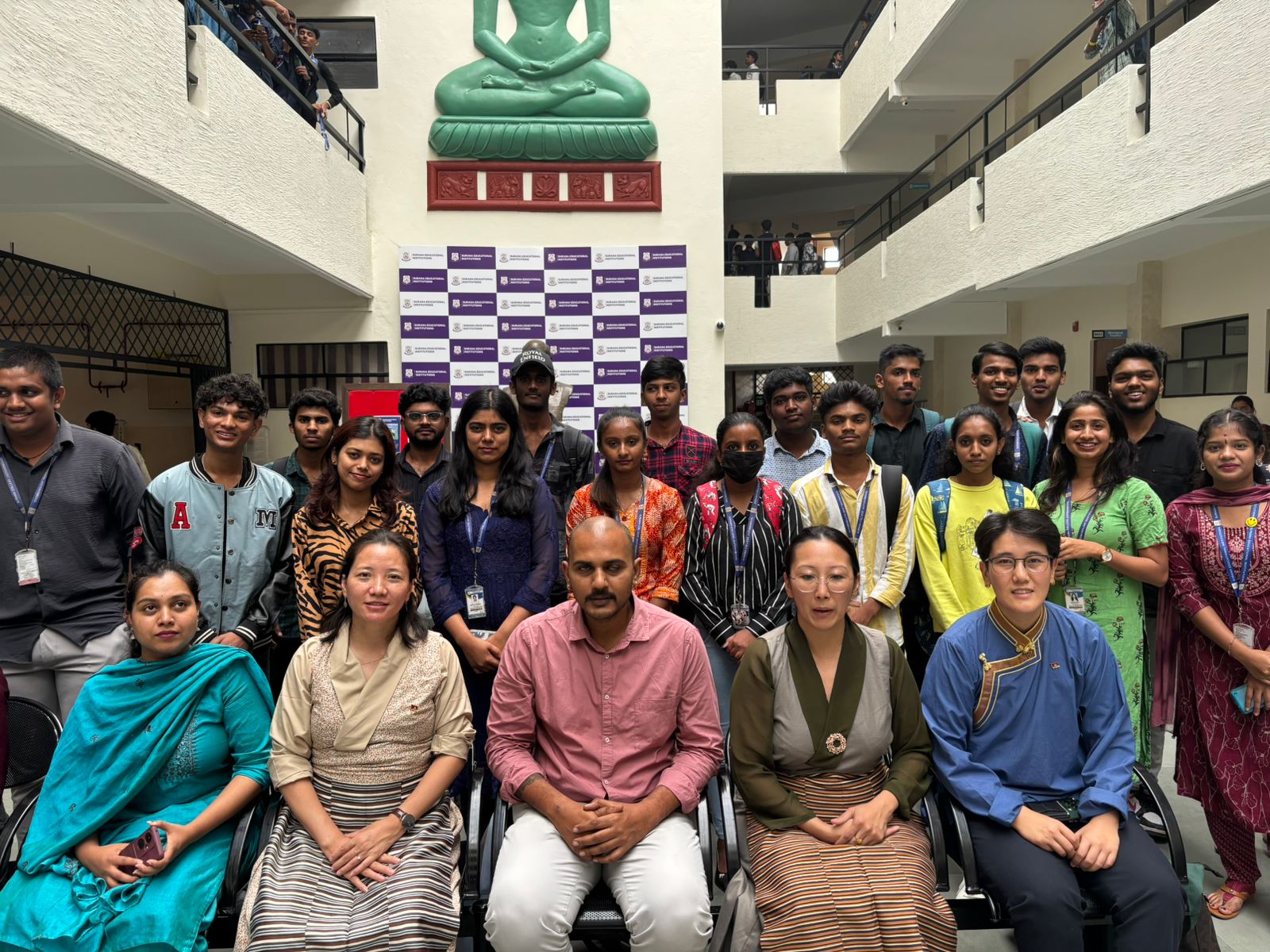
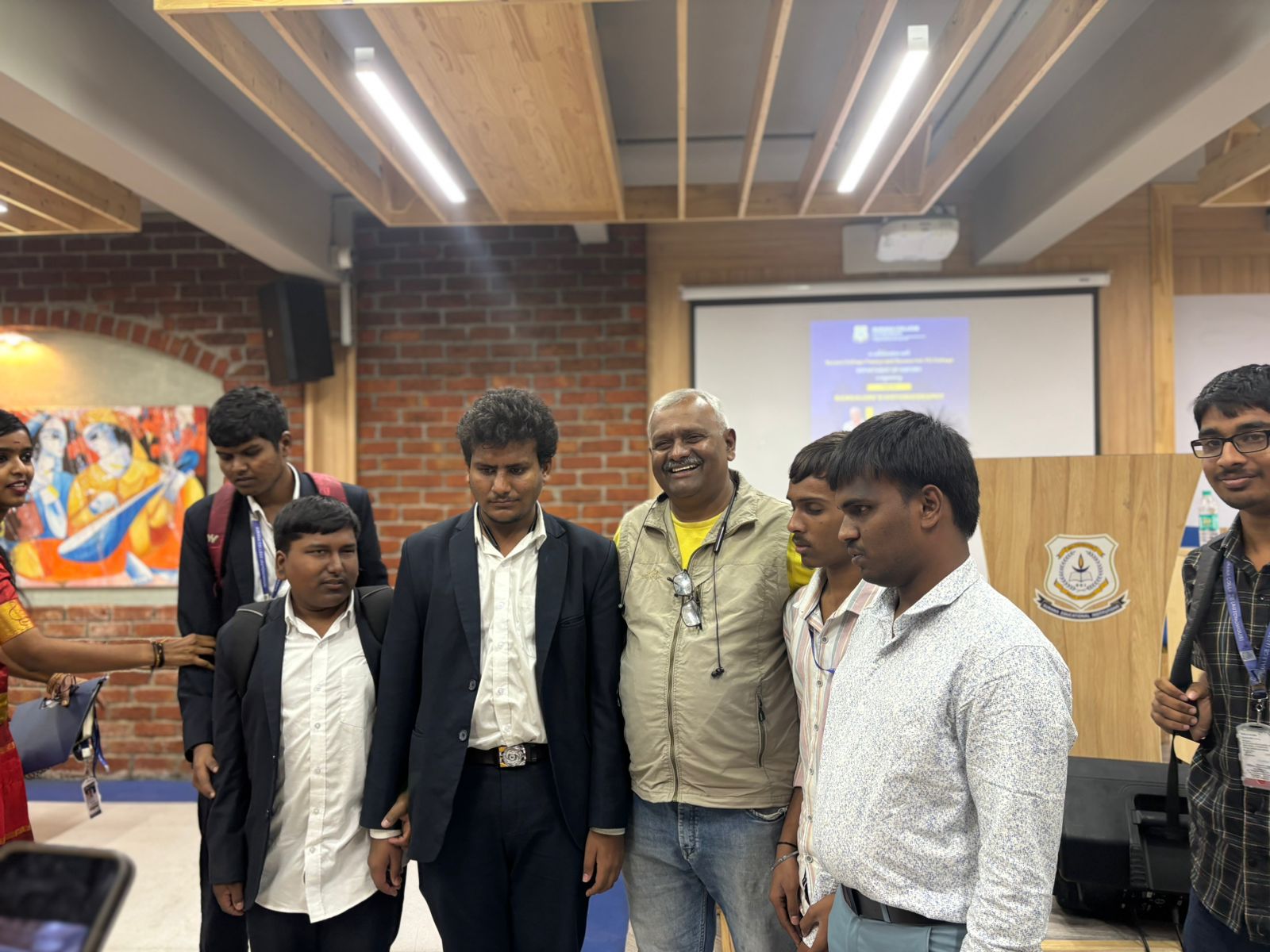
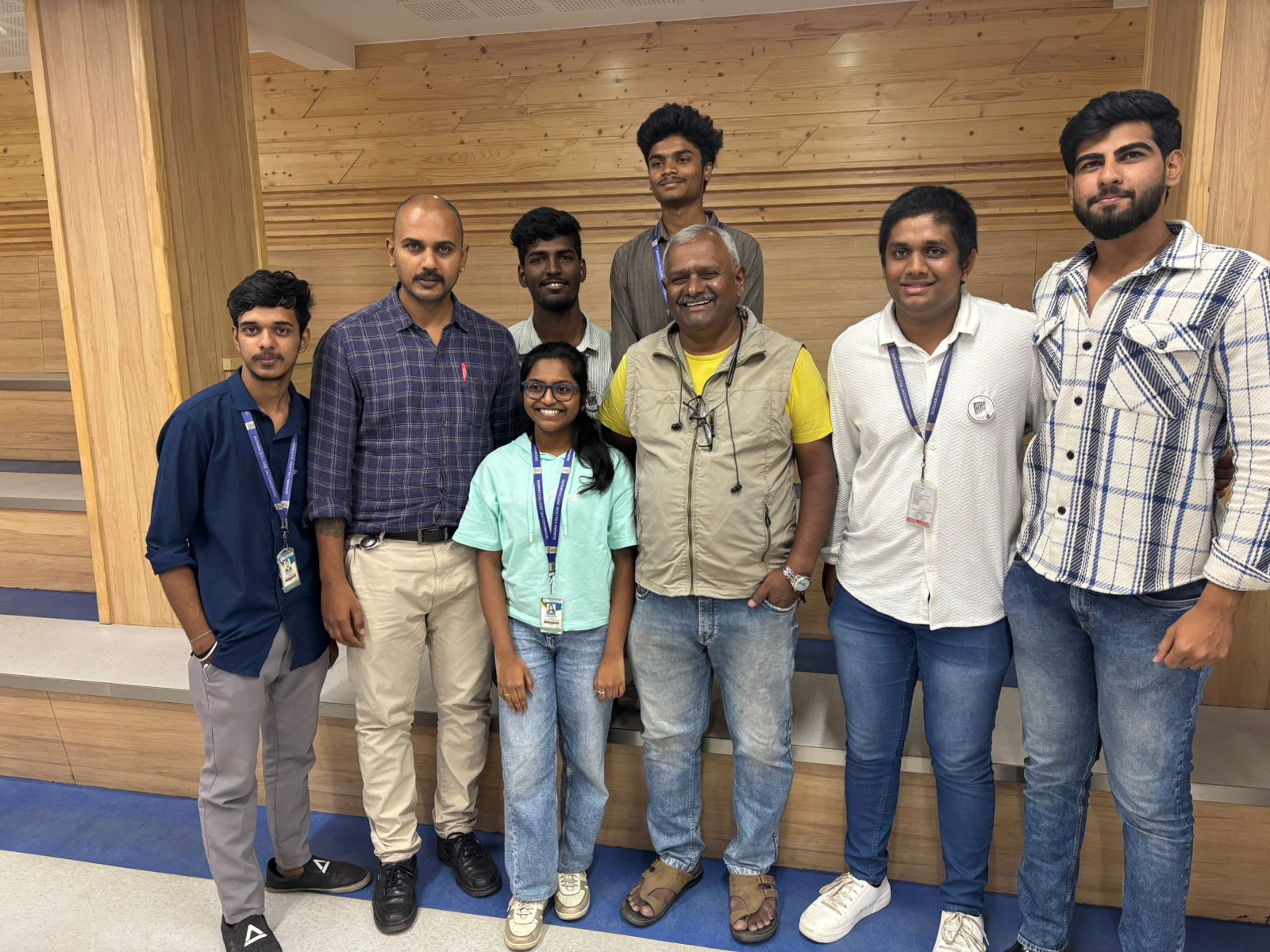
.png)
.jpeg)
.jpeg)
